The main objective of BBE is the study and valorization of bioactive compounds produced mainly by microorganisms (e.g. cyanobacteria, planctomycetes, dinoflagelates, microalgae), with a special emphasis on toxins and other natural compounds with pharmaceutical, nutraceutical, cosmeceutical, allelopathic, ecological, antifoulings and other industrial applications.
BBE main research lines and objectives:
1) Discovery and characterization of new bioactive compounds produced by microorganisms with ecological, pharmaceutical or other industrial applications and study of their biosynthesis;
a) Use of cyanobacteria metabolites to control the evolution of phytoplankton communities, searching allelopathic substances to prevent phytoplankton blooms.
b) Pharmacological and nutraceutical applications of bioactive substances produced by microorganisms. Isolation and structure elucidation of antimicrobial, anticancerigenous, antiobesity and anti-inflamatory substances from microorganisms of our culture collections. Evaluation of their biosynthesis and mode of action.
c) Development of new antifouling assays; selection of the most promising cyanobacteria secondary metabolites with antifouling properties against mussels and barnacles.
2) Study of the diversity and toxicity of the natural compounds and their effects from the molecular to the ecosystem levels.
a) Marine emergent toxins. We have shown the occurrence in Portuguese coastal waters of emergent marine toxins such as TTX, BMAA and cyclic imines, so will map the occurrence of these toxins and others such as ciguatoxin and palytoxins, study the geographical and seasonal patterns and to unravel new toxin vectors.
b) Cyanobacteria toxin diversity and effects. We will continue to study the cyanotoxin diversity and occurrence in special the invasive cylindrospermopsin and its effects, the bioavailability of cyanotoxins in complex matrices and the detoxication mechanisms.
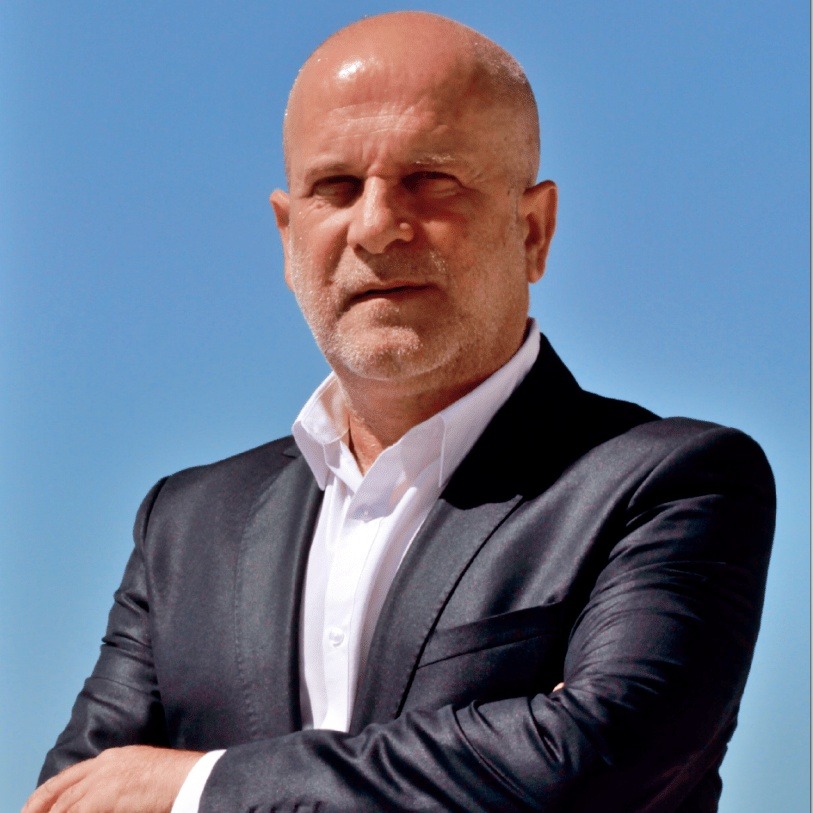

PhD in Biology at FCUP, Porto. Full Professor – Faculty of Sciences of Porto University and director of CIIMAR – Interdisciplinary Center of Marine and Environmental Research, Chief Strategy Officer – Agriculture – Fykia Biotech. Director of the Team of Blue Biotechnology and Health (BBE) of CIIMAR.
Main research: cyanobacteria secondary metabolites: toxins and molecules with biotechnological applications. Director of the LEGE culture collection comprising more than 2000 strains of cyanobacteria and microalgae. Published 490 papers in Biotechnology and Ecotoxicology. Coordinator of two H2020 projects: RISE and ERA Chair.
Director of the Doctoral Program in Marine Biotechnology and Aquaculture (U Porto and U Minho).
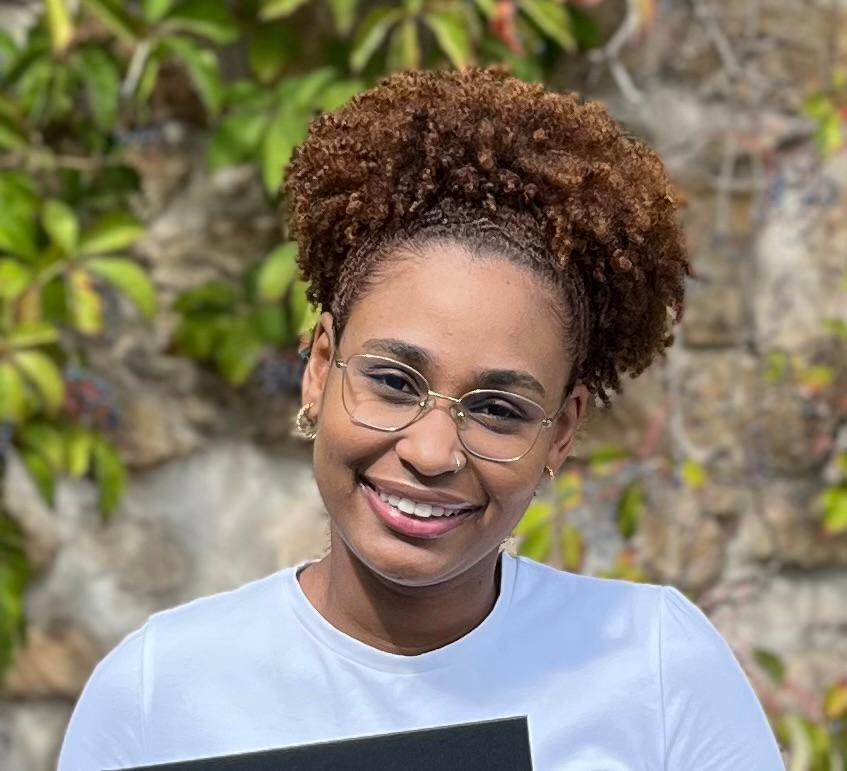

Aimone Duarte is a Master’s student in Applications in Biotechnology and Synthetic Biology at the Faculty of Sciences of the University of Porto, with a degree in Biotechnology and a particular interest in marine biotechnology. Currently, she is conducting her dissertation at CIIMAR, focusing on the biodiversity and biotechnological potential of cyanobacteria from Cape Verde, with an emphasis on antioxidant compounds. With experience in biotechnology and synthetic biology, she aims to contribute to research in the field of marine biotechnology.
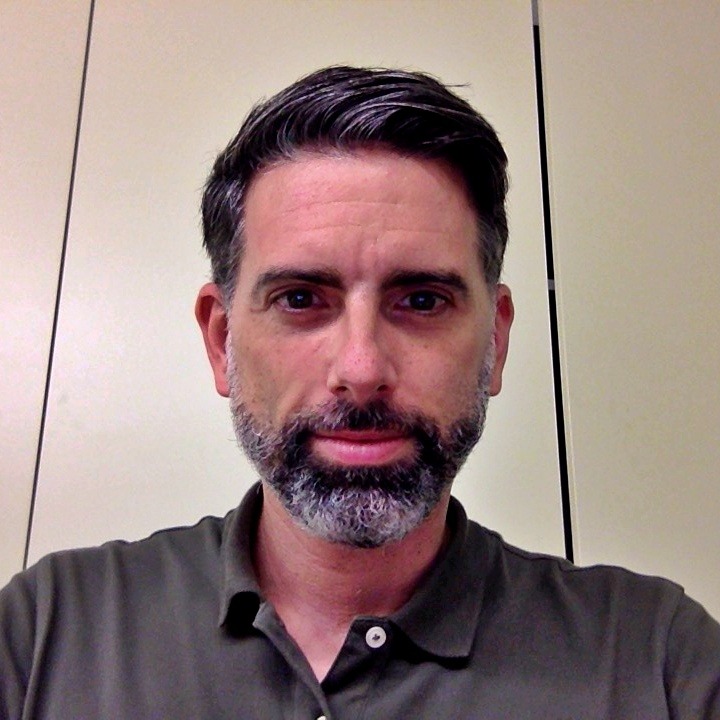

Aldo Barreiro Felpeto is a researcher in the field of plankton ecology. He studied biology (1997-2001) and obtained his PhD at the University of Vigo (Spain) (2001-2007). The PhD focused on ecophysiological interactions between zooplankton and toxic phytoplankton. From 2008-2010, he worked as a post-doctoral researcher in the Department of Ecology and Evolutionary Biology at Cornell University (Ithaca, USA) on plankton population dynamics. In 2011, he joined CIIMAR, working on community-scale chemical interactions of cyanobacteria. He developed skills in statistics and dynamic modeling using R software, organized more than 20 editions of courses, and conducted collaborations in other research fields.
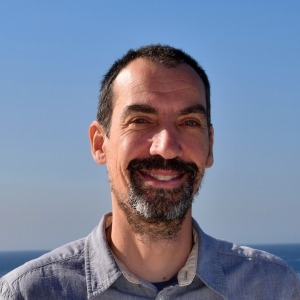

Alexandre Campos graduated in Biology (1996) by the University of Aveiro and has a Master’s Degree in Plant Breeding (1999) by the University of Évora. He completed his PhD in Biological Sciences in 2005 at the Instituto de Tecnologia Química e Biológica (ITQB) from University Nova de Lisboa. He is currently Assistant Researcher at CIIMAR (Blue Biotechnology, Environment and Health Laboratory) and his main research interests cover the toxicology and risk assessment of harmful algal blooms. He is particularly interested in the metabolism of biotoxins in bivalve molluscs, water quality assessment and water reuse in agriculture.
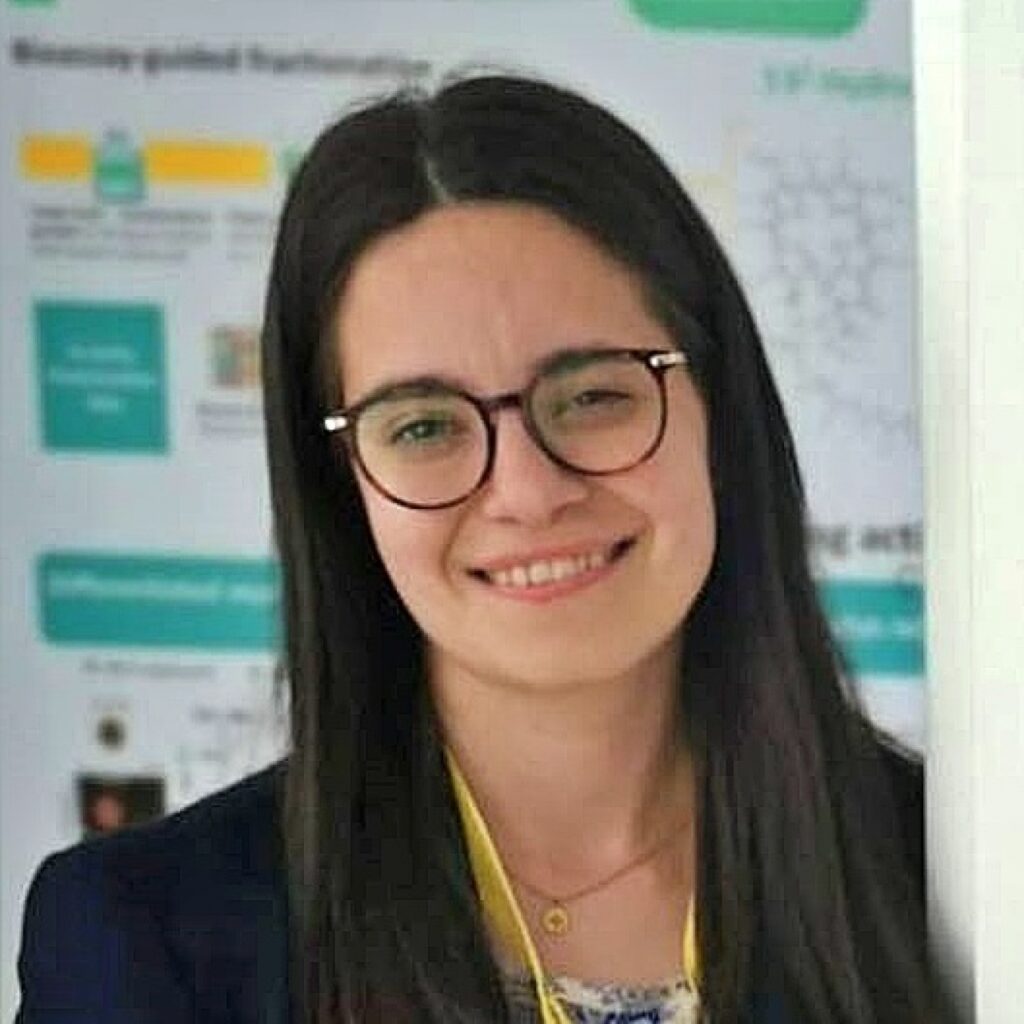

Ana Fonseca holds a BSc in Environmental Health at the School of Health – Polytechnic Institute of Porto and a MSc in Environmental Toxicology and Contamination at the Institute of Biomedical Sciences Abel Salazar of the University of Porto. She is currently PhD student in Marine Biotechnology and Aquaculture in the Faculty of Sciences – University of Porto, integrating the Blue Young Talent PhD program of CIIMAR. Her research interests focus on finding novel pharmaceuticals and nutraceuticals for human metabolic diseases and appetite control, bioprospecting the bioactive potential of microalgae, cyanobacteria and actinobacteria.
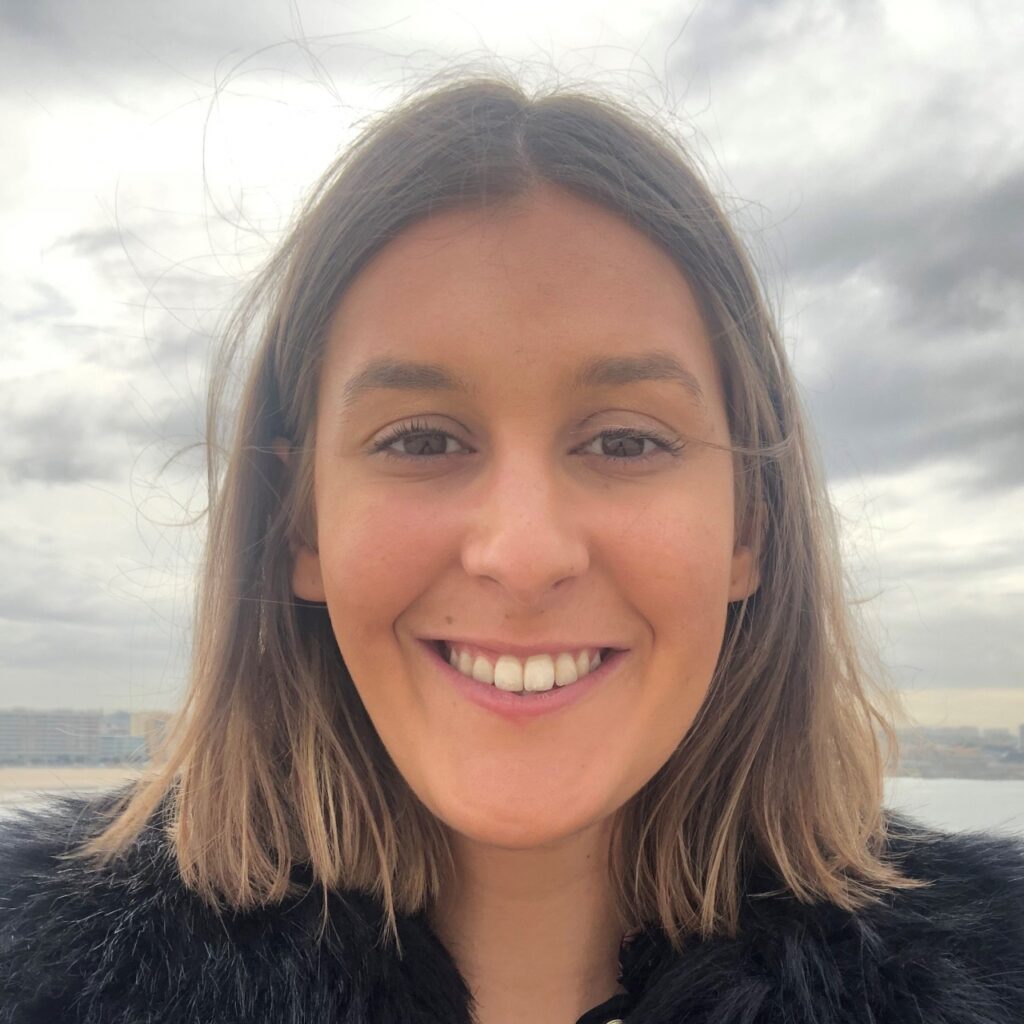

BSc in Applied Biology, University of Minho | MSc Molecular Biology, Biotechnology and Bioentrepreneurship in Plants, University of Minho | Pos-Graduated Quality Control, Faculty of Pharmacy, University of Porto
I initiated my academic path at University of Minho, where I completed my BSc degree in Applied Biology. Having developed particular interest on the medicinal uses of plant bioactive compounds. Thereafter, I enrolled the master course in Molecular Biology, Biotechnology and Bioentrepreneurship in Plants, in University of Minho, where I acquired valuable knowledge on plant molecular biology, plant secondary metabolic pathways, plant tissue culture and engineering, and industrial biotechnology. Having developed great affinity towards understanding plant responses to environmental stress on a genetic basis, I initiated my master thesis on the “Genetic basis of ABA-GA hormonal cross-talk in the control of flowering time in Arabidopsis”, under the supervision of Professor Lucio Conti from the Department of Biosciences of Università degli Studi di Milano part of the ERASMUS+ program. During this project I had the opportunity to improve techniques including in vitro culture, genetics and transcript/protein analyses and also computational/statistics among other molecular and biochemical approaches. Currently I am working on LEGE-CC maintenance, mostly on a molecular level with the identification of strains.


I completed a degree in Biology at University of Aveiro in 2010. In 2009, I have joined to the Laboratory of Ecotoxicology Genomics and Evolution, nowadays designated as Blue Biotechnology and Ecotoxicology (BBE), to do my academic internship, under the supervision of the Doctor Vitor Vasconcelos (BBE) and Doctor Susana Loureiro (CESAM & Department of Biology, University of Aveiro). In 2012, I completed my master’s degree in Applied Biology, under the same supervision. Currently, I am working as a technician on LEGE-CC giving technical support on the maintenance and development of the collection by isolating and identifying new strains of microalgae and cyanobacteria using molecular tools.
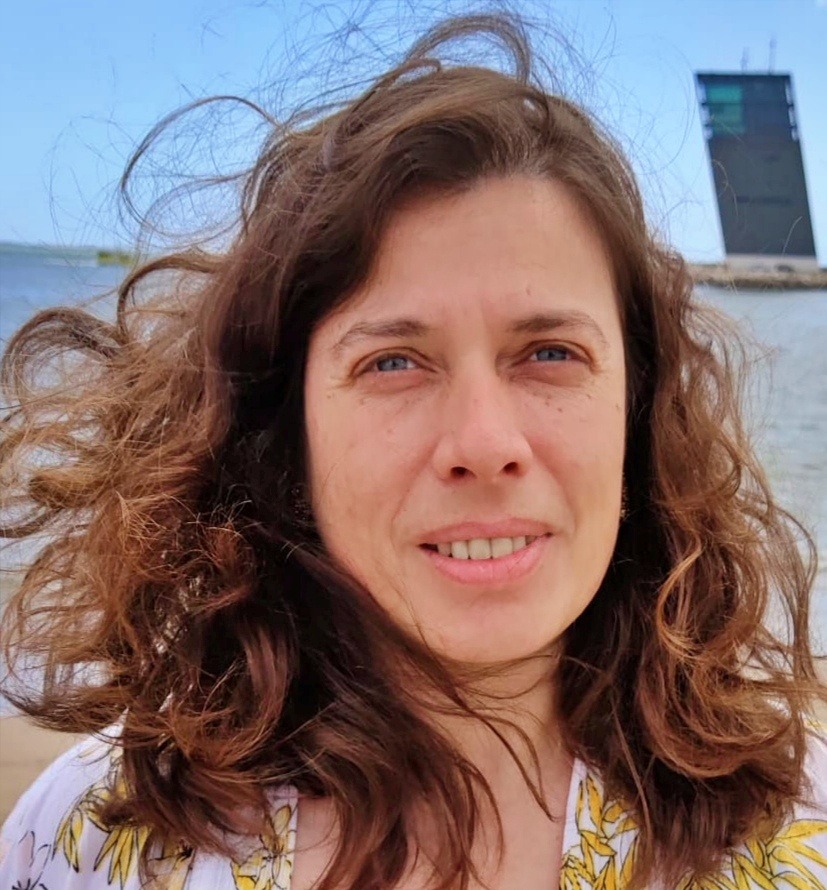

Catarina is a microbiologist with 19 years of experience in microalgae and cyanobacteria biodiversity, harmful algal blooms, food security and environmental health. Holds a PhD in Biology with an MSc in Microbiology and is currently a researcher in the National Shellfish Monitoring System (SNMB) held at the Portuguese Institute for the Sea and Atmosphere (IPMA I.P.). Research activities include emerging toxic species and toxins, non-indigenous species, enteric viruses, food traceability and biobanks. National delegate in several international working groups and task force teams of the European Union Reference Laboratories (EURL), International Council for the Exploration of the Sea (ICES) and Intergovernmental Oceanographic Commission (IOC/UNESCO).
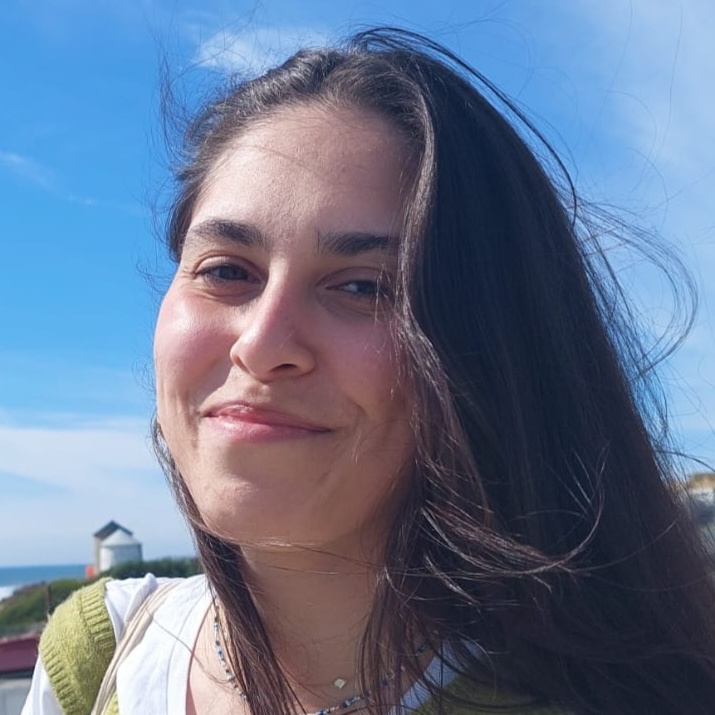

Clara Cerqueira is a M.Sc. Student of the MSc in Bioinformatics and Computational Biology (FCUP) that previously graduated in Biology (FCUP) in 2021. Her MSc project is focused on optimizing plastic-degrading enzymes using data mining tools, molecular models and machine learning models with the goal of finding a sustainable solution for ocean cleanup.
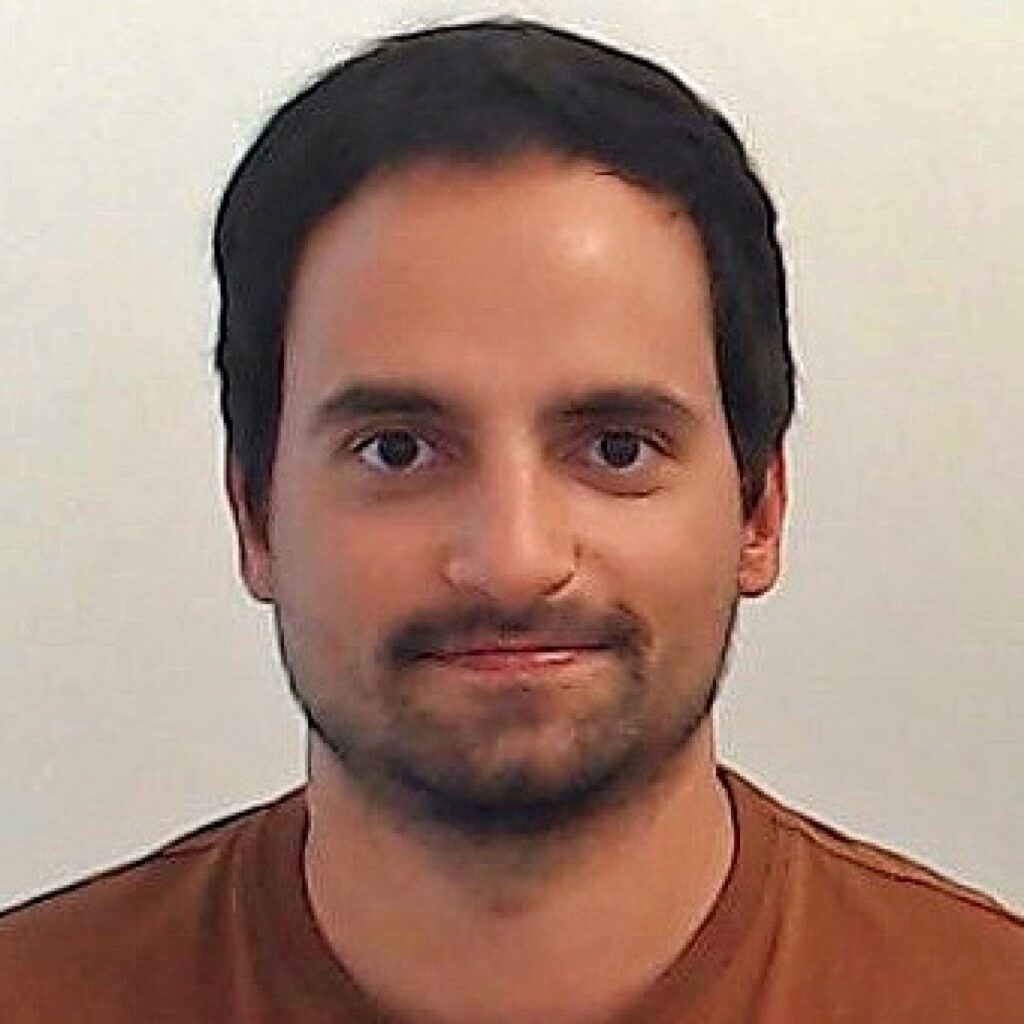

Fábio Faria has a Bachelor’s degree in Biology-Geology, a Master’s degree in Ecology, and a postgraduate degree in Science Communication. He has collaborated on various scientific outreach projects, particularly in producing content for field guides, educational notebooks, exhibitions, museums, and interpretive panels. He has provided technical and scientific support for environmental education projects and served as a monitor on field trips with children and young people. He is also a scuba diver and has participated in research projects in the field of marine ecology.
Currently, he is responsible for the communication of the Portuguese Blue Biobank.


Filipa Rodrigues earned her degree in Biochemistry and completed her master’s in applied Biochemistry in 2022, at the University of Madeira. Currently, Filipa is a researcher at the Laboratory of Biomaterials, Bioanalysis, and Biotechnology of the University of Madeira/CIIMAR. Her research focuses on the use of exopolysaccharides extracted from microalgae and cyanobacteria to create innovative sustainable coatings. Filipa is committed to developing eco-efficient alternatives that can replace traditional, non-recyclable disposable materials, to promote environmental sustainability and improve food safety.
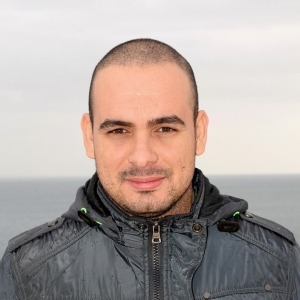

Flavio Oliveira graduated in Biological Sciences from the Anhanguera University of Bauru (Brazil) in 2015 and Master’s degree in Biology and Water Quality Management by Faculty of Sciences of the University of Porto in 2017. Between 2018 and 2023 he was a member of Blue Biotechnology and Ecotoxicology Culture Collection (LEGE-CC). He started the Doctor’s Degree in Marine Biotechnology and Aquaculture in 2022. Main research focus on cyanobacteria diversity, and molecules with biotechnological applications. Participated in more than 5 projects.
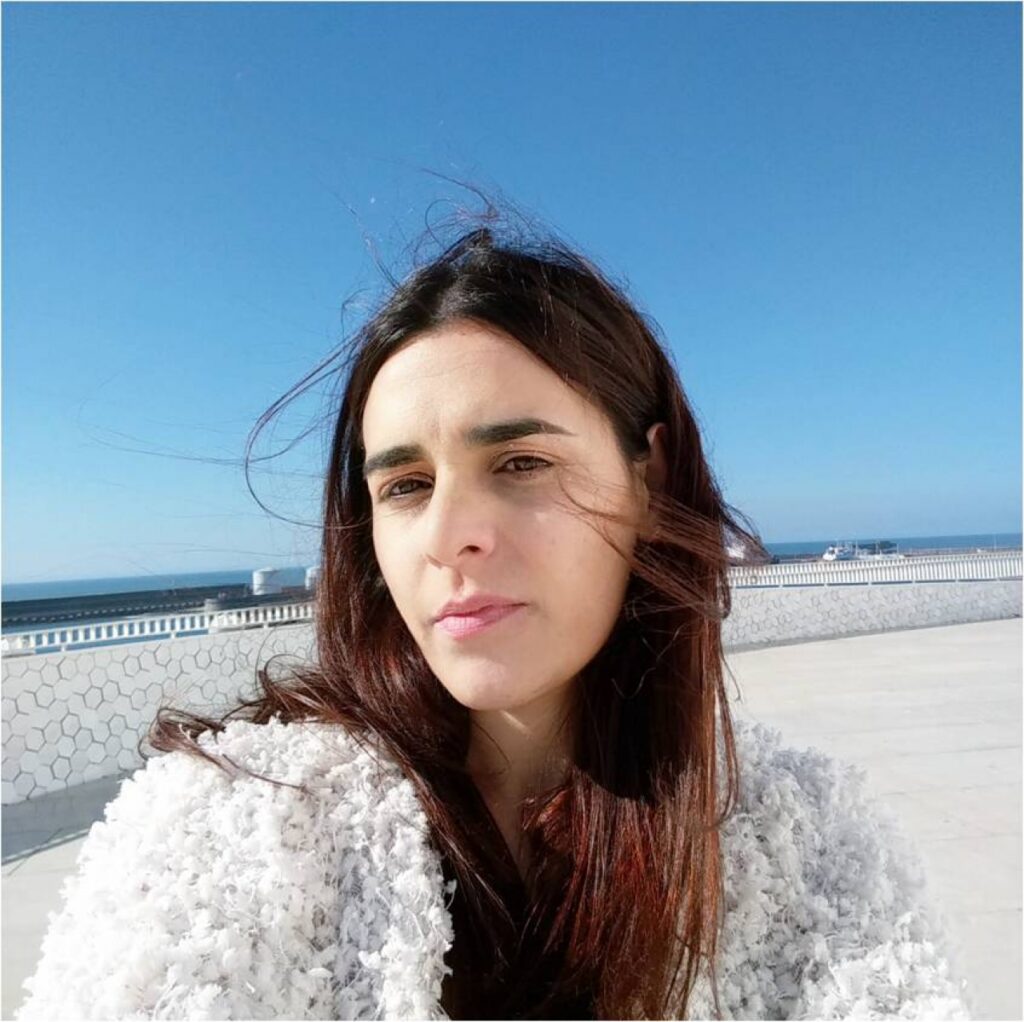

Graciliana Lopes obtained the European Doctoral Degree in Pharmaceutical Sciences, Specialty of Phytochemistry and Pharmacognosy in 2014 (Faculty of Pharmacy, University of Porto, Portugal/Heinrich-Heine University, Düsseldorf, Germany). During her career, she has specialized in the areas of Natural Sciences and Phytochemistry, with focus in Marine Biotechnology. Her work has been devoted to the chemical characterization of marine bioactive extracts, through different chromatographic techniques, and to the evaluation of their biological activities in different cell and cell-free systems, with a special emphasis in the fields of inflammation and oxidative stress.
She has participated in several national and international research projects, devoted to the valorization of marine resources in the biotechnological and pharmaceutical fields, including the joint collaboration project ALCHEMY (POCI-01-0247-FEDER-027578), between the Biotechnology School of the Portuguese Catholic University (ESB-UCP) and the North American Amyris, devoted to the economic valorization of Amyris industrial fermentation coproducts/residues for the development of innovative products for cosmetic applications. She had the opportunity to join international consortiums and work with researchers and companies from Spain, France, England and Ireland, and to supervise PhD and Master Students.
Presently, she is an Assistant Researcher at CIIMAR (CEECIND), and her field of research focus the exploitation of marine bioactive compounds in molecular targets and mediators underlying the inflammatory process, and also their application in cosmetic industry.
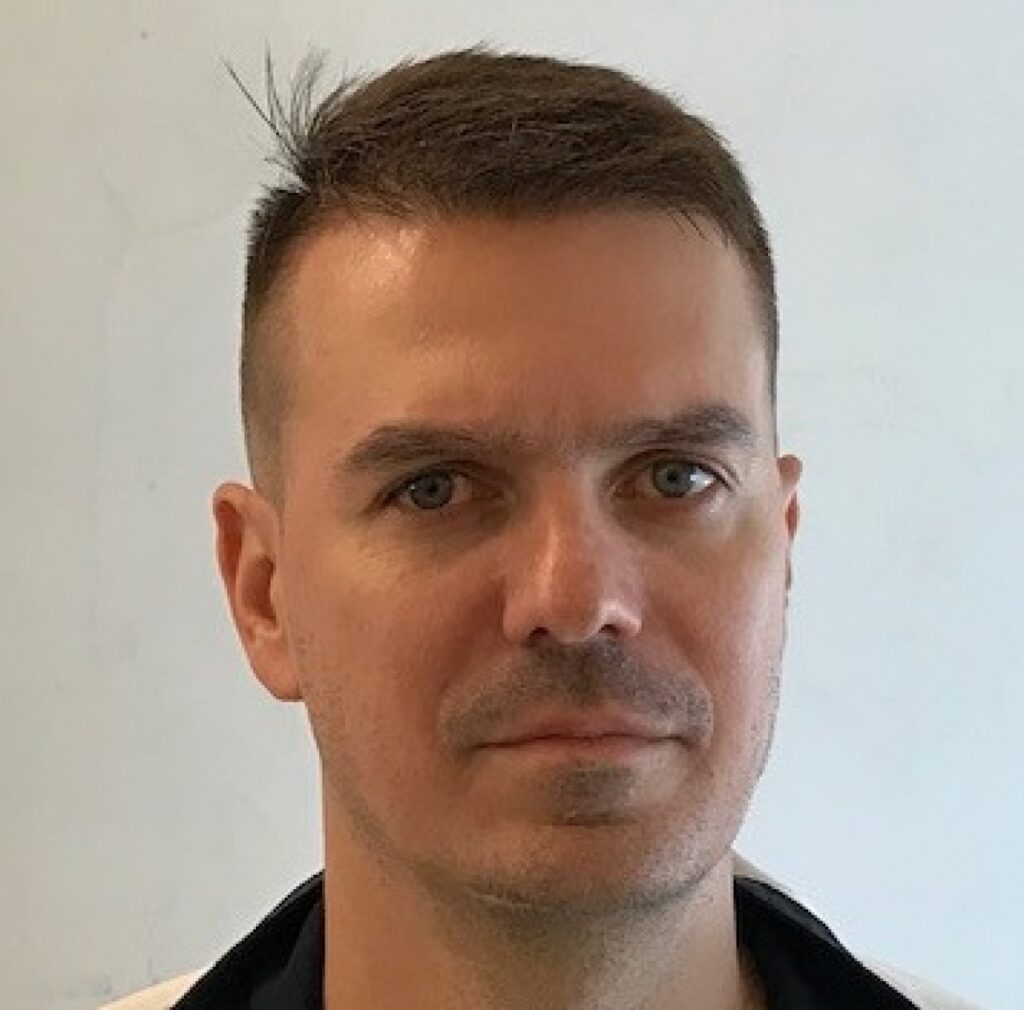

Graduated in Biological Sciences (Bachelor’s degree) at the Federal University of Santa Maria (2002-2007). Master’s degree in Botany at the Federal University of Rio Grande do Sul (2007-2009). PhD by the Postgraduate Program in Plant Biodiversity and Environment at the Institute of Botany of São Paulo. Post-doctorate at CIIMAR (2019-2020). Currently works as a researcher in taxonomy of cyanobacteria and microalgae.
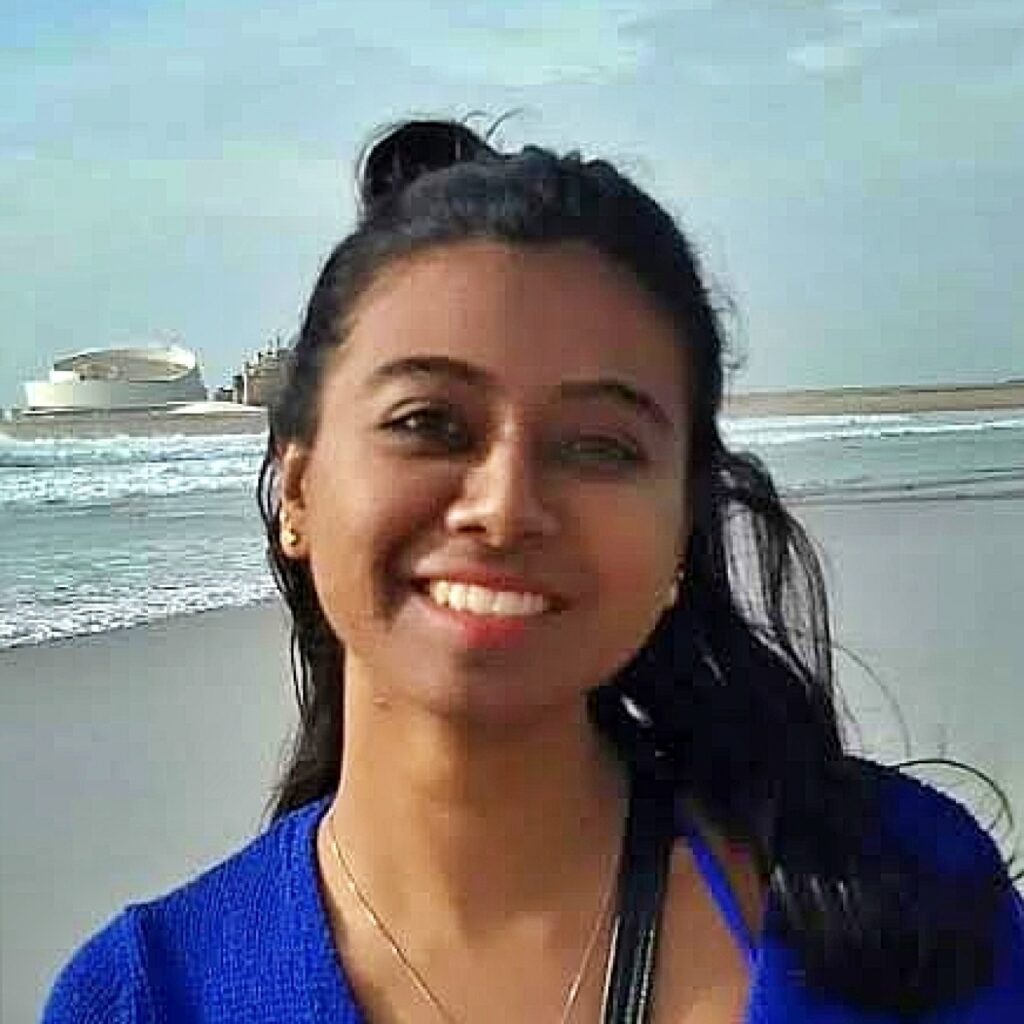

I am Guna Bavithra from India. I completed my integrated master’s degree in Biotechnology from Vellore Institute of Technology, India. I did my master thesis on Bioremediation of Cyanotoxins at CIIMAR in 2018. Now, I am enrolled as a PhD student in Environmental Sciences and Technology at the University of Porto and a La Caixa INPhINIT fellow. My research interests are both the study of constructed wetlands and the various kinds of toxic cyanobacteria and cyanotoxins in eutrophic waters. My PhD research is under the umbrella of the TOXICROP project; working on innovative eco-technologies for remediation of wastewater.
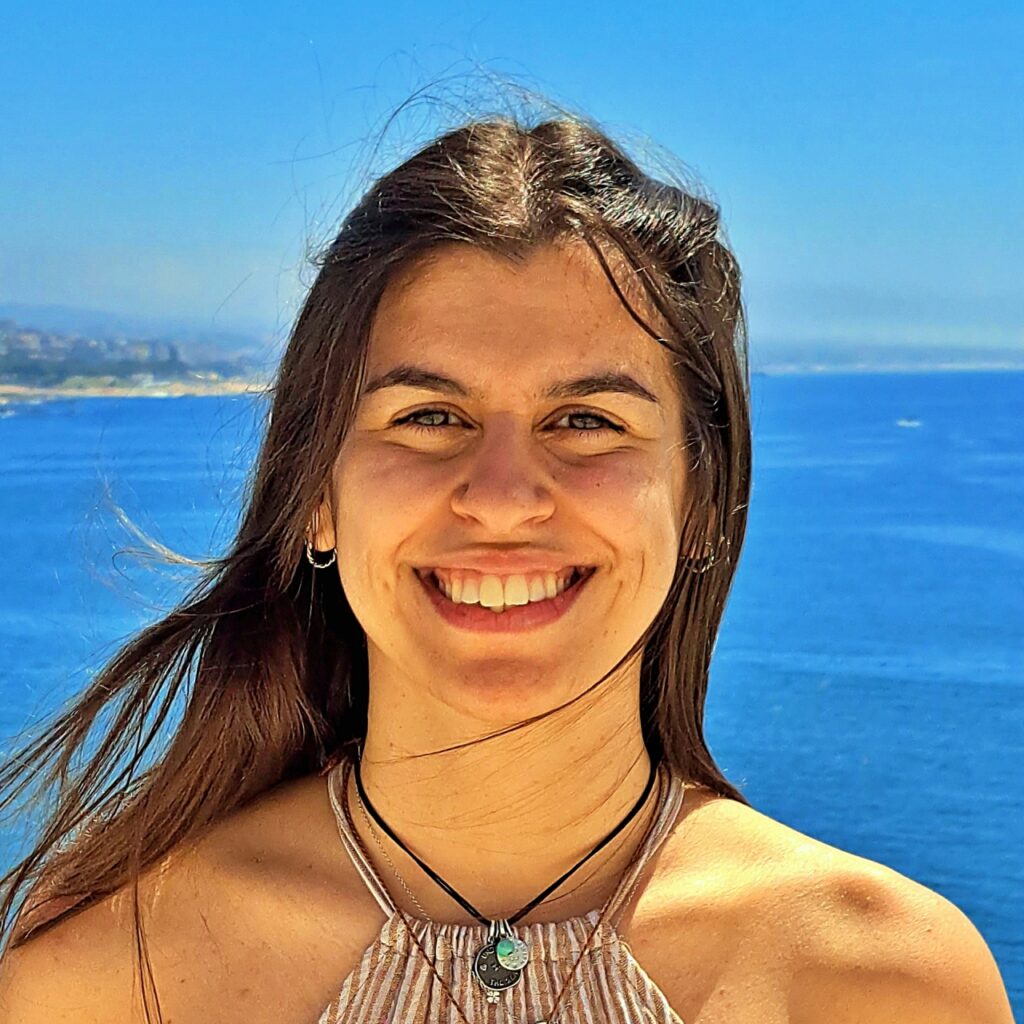

Inês Soares graduated in Aquatic Sciences from the Institute of Medicine and Biomedical Sciences Abel Salazar (ICBAS), University of Porto in 2017 and is presently a master’s degree student in Marine Sciences – Marine Resources at the same institution. Experienced in science communication, environmental education, animal husbandry and handling. Her main interests are animal welfare, ethology, ecology, and species conservation.
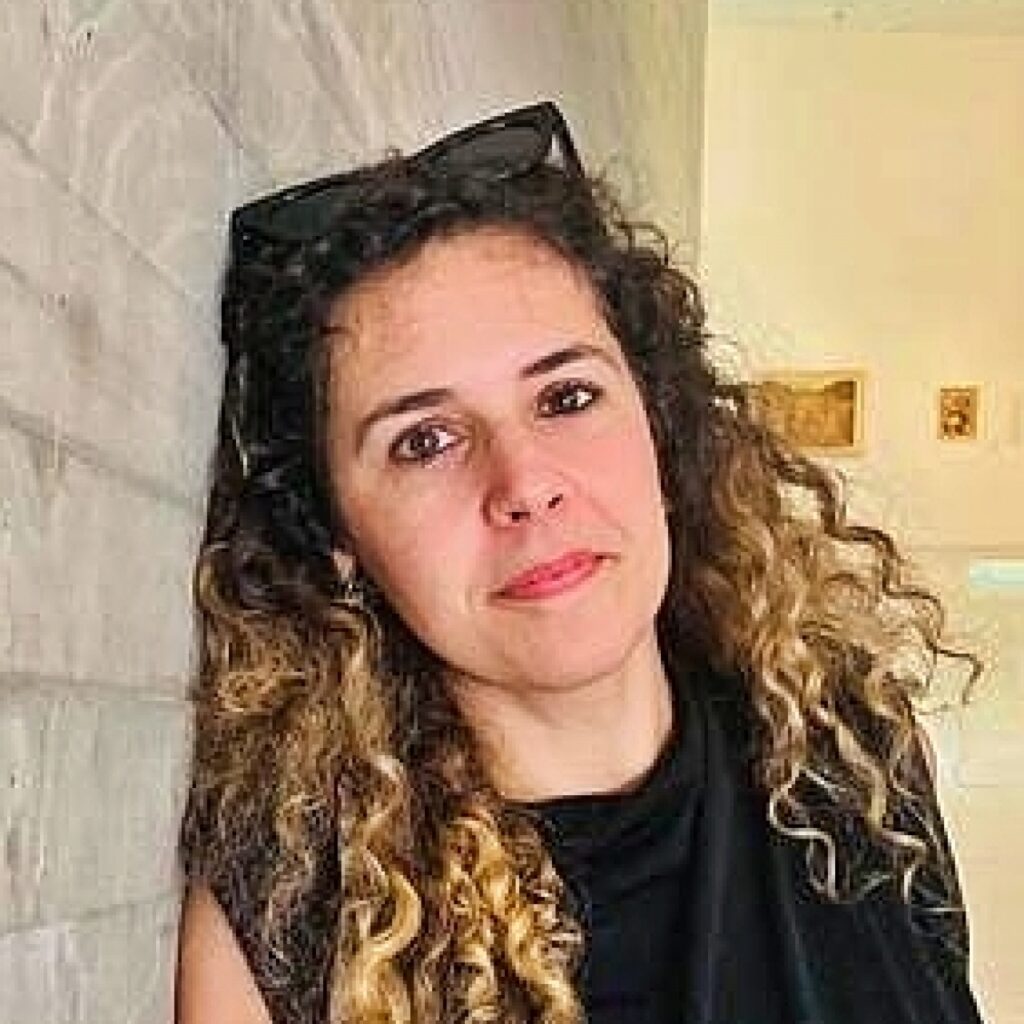

Marine naturalist since a childhood on the intertidal coastline of Vila do Conde. Deep sea and coral research developed at the Azores, where her academic path began. Explorer at deep NE Atlantic Ocean during 16 research cruises. Driven by a main research interest, Octocorallia, using an integrated approach of taxonomy and zoogeography. Collections provide her with samples essential to put the puzzle together.
After more than a decade collecting, cataloguing and teaching curation of a marine invertebrate collection, she defends the value of collections and taxonomy. She is the manager of the Portuguese Blue Biobank, a collection of the future.
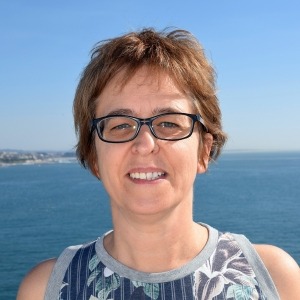

Isabel Cunha holds a BSc in Aquatic Sciences (ICBAS-Portugal), a MSc in Marine and Fisheries Sciences (UK), a PhD in Biochemistry and Molecular Biology (Spain) and various Post-docs in diverse areas such as aquaculture, ecotoxicology and bioactivity of marine natural compounds. She is presently a Post-Doctoral researcher at the CIIMAR-UP, in the Blue Biotechnology and Ecotoxicology group (BBE), researching in the areas of biosensors, marine adhesives with biotechnological application and transcriptomics. She is the author of 34 scientific papers published in international peer reviewed journals and directed various students and foreign research fellows in their thesis and research activities.
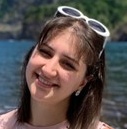

With a degree in Biochemistry (2018) and a master’s in Applied Biochemistry (2022) from the University of Madeira, Ivana is currently pursuing her PhD funded by the FCT, focused on developing bioactive and intelligent food packaging from exopolysaccharides of microalgae and cyanobacteria. This work aims to replace traditional plastic materials with biodegradable options that enhance food quality and safety. Thus, Ivana aspires to promote sustainable practices and tackle urban challenges related to excessive plastic consumption.
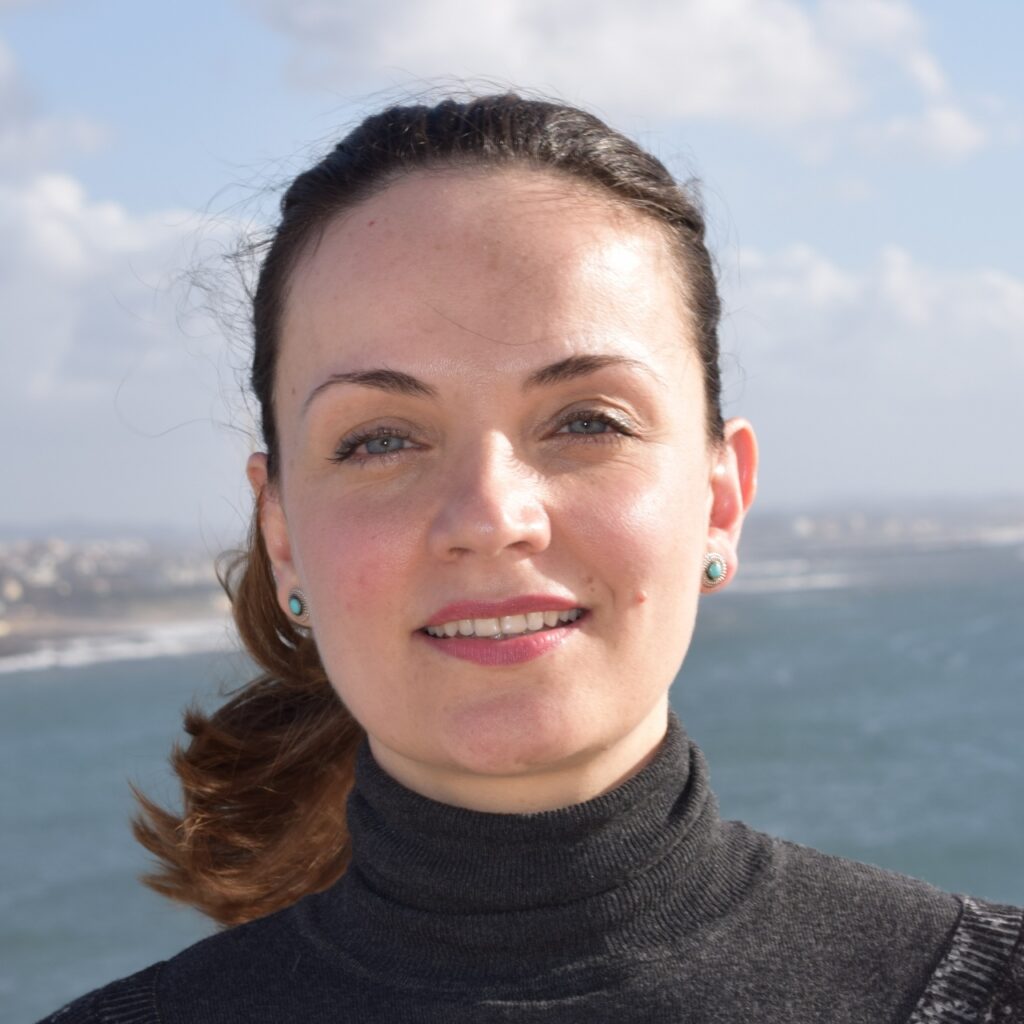

Janaína Morone Bavini holds a Master’s degree in Biology and Water Quality Management, by the Faculty of Sciences – University of Porto, in 2018. Her main research interest is focused in cyanobacteria. Now, she has been working as a research technician on an international project. Her research interests are on natural compounds with cosmetics and cosmeceuticals potential, derived from cyanobacteria, and oriented to the areas of photoprotection, antioxidants and cellular regeneration of human skin. Her goal is to work with biotechnology in the line of the future incorporation of cyanobacteria promising extracts in a pharmaceutical formulation directed to skin care.
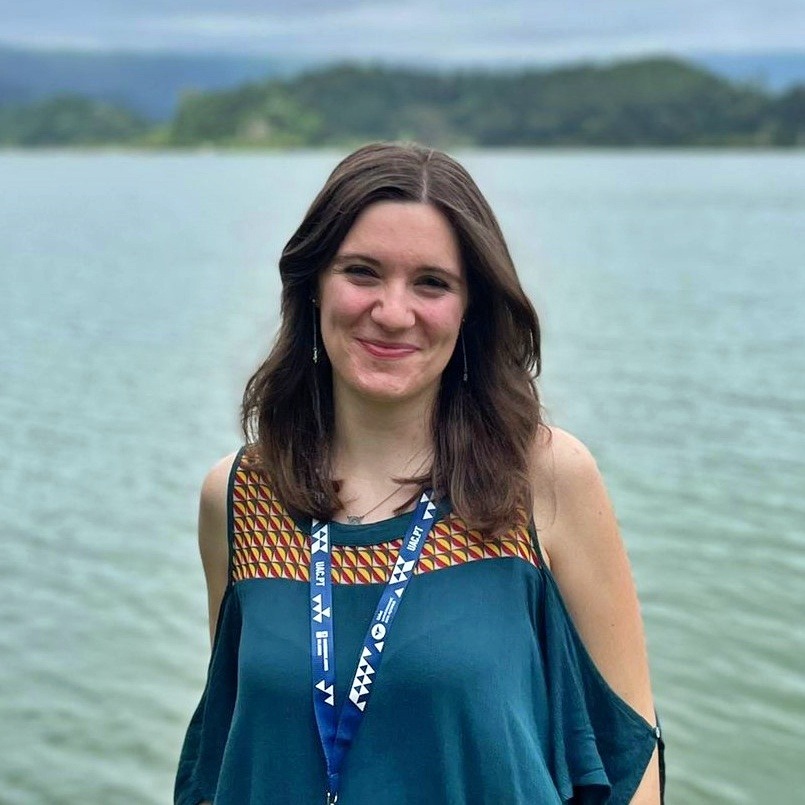

Leonor Ferreira holds a Bachelor’s degree in Environmental Sciences and Technology from FCUP and a Master’s degree in Environmental Toxicology and Contamination from ICBAS/FCUP. She worked as a research fellow for project CYANCAN, performing bioactivity screening of cyanobacteria extracts and isolation of new bioactive compounds. Currently, she is a PhD student in Marine Biotechnology and Aquaculture from FCUP. Her work focuses on the prospection of cyanobacteria for isolating new bioactive compounds. Her main research interests are 3D cancer cell models, multidrug resistance, drug discovery and natural products from cyanobacteria.
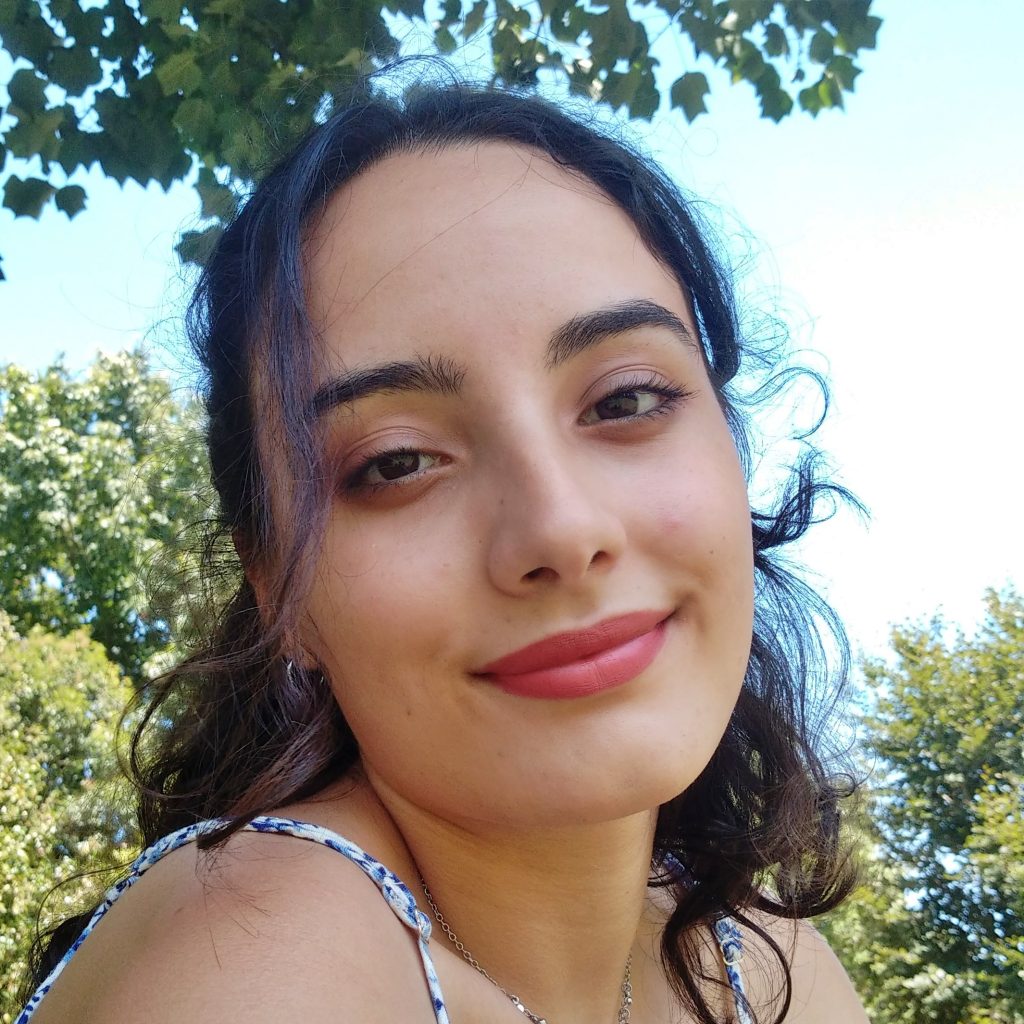

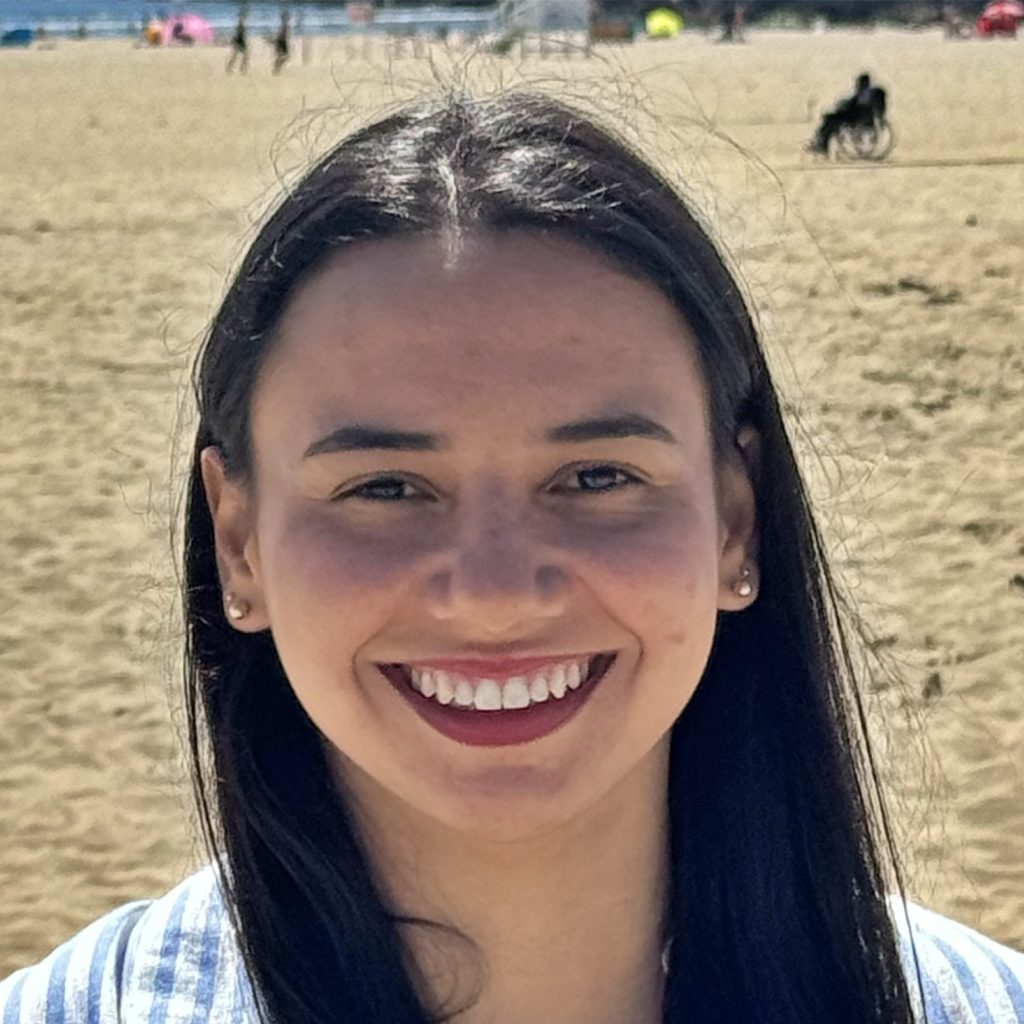

Maria Paula Gomez graduated in Microbiology and Bioanalysis from the Industrial University of Santander (Colombia) and received her MSc in Biochemistry from the National Autonomous University of Mexico (Mexico). During her education, she acquired knowledge in the fields of molecular biology, microbiology and biochemistry. Currently, she is a PhD student under the doctoral training programme “BIOTOXDoc – Safe food in a world of changing climate” and the PhD programme in Environmental Toxicology and Contamination – University of Porto. Her research focuses on exploring the molecular modulation of biotoxin metabolism and depuration in bivalve molluscs.
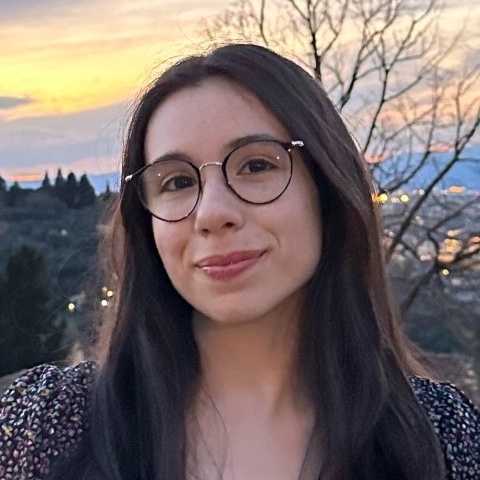

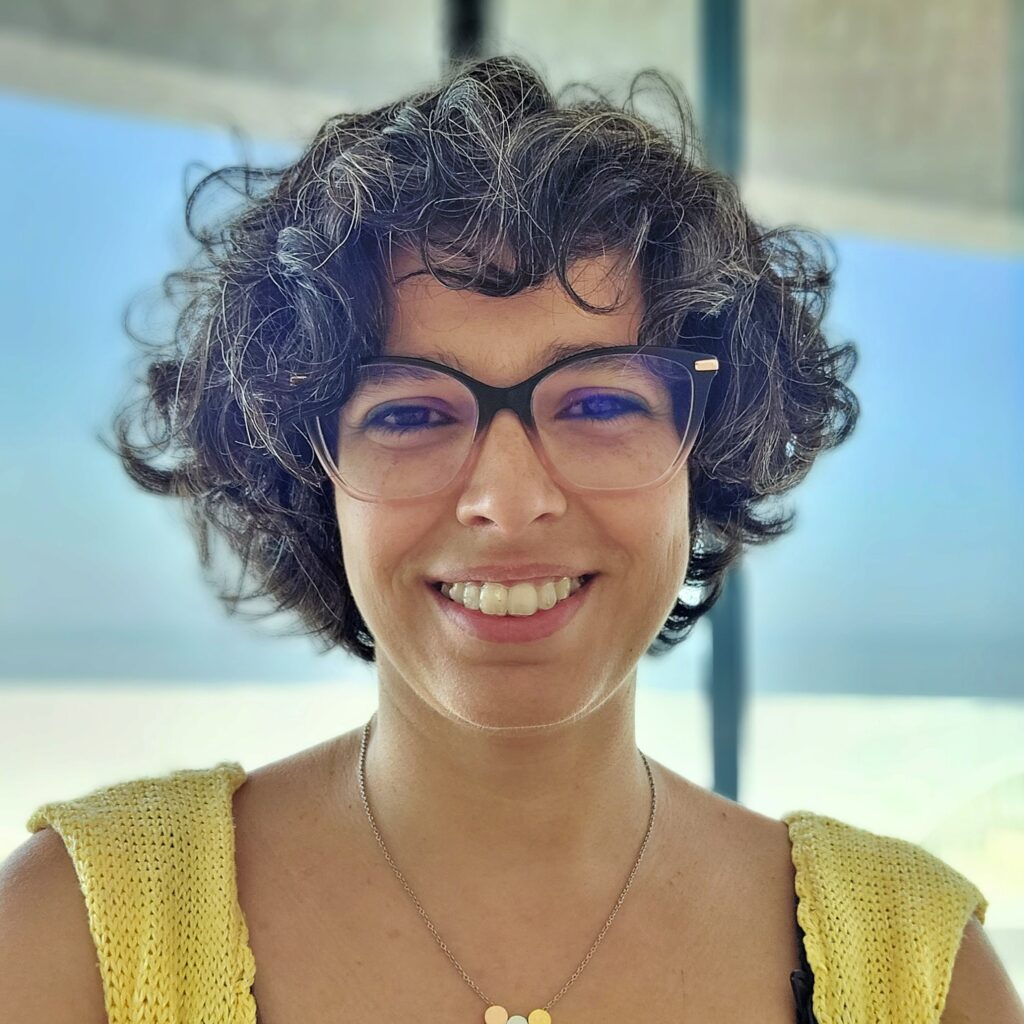

Mariana Reis (PhD in Pharmacy – University of Lisbon, 2015) is a researcher at CIIMAR who is interested in the natural products chemistry of microalgae and cyanobacteria. These organisms produce a diverse array of organic chemicals that are just waiting for a novel biotechnological application. With her extensive experience in natural compounds isolation, structural elucidation, and molecular derivatization, she is involved in several projects whose goal is to provide microalgae and cyanobacteria-driven solutions to human health and environmental problems. She is also very engaged in scientific dissemination actions and training the next generation of scientists, through lectures and supervision of PhD, masters and undergraduate students.
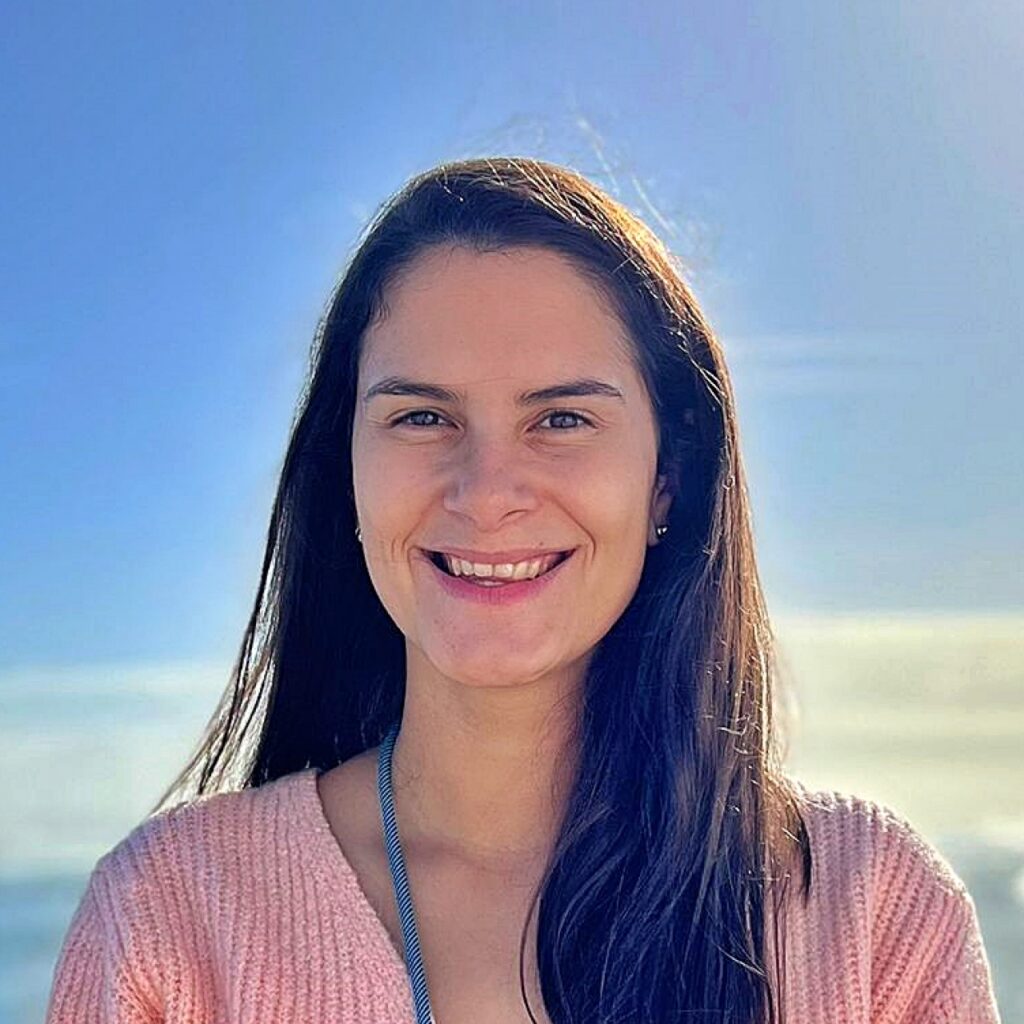

Mariana Reimão holds a BSc in Environmental Health and a MSc in Hygiene and Safety at Organizations at the School of Health – Polytechnic Institute of Porto. She is currently a Ph.D. student in Environmental Sciences and Technology at the Faculty of Sciences of the University of Porto. Her research interests regard the exploitation of cyanobacterial pigments for the sustainable dyeing of textile fabrics.

Mário Jorge Araújo holds a PhD in Biology and Ecology of Global Changes, and his research focuses on the impacts of human activities on aquatic organisms, with an emphasis on the molecular and physiological effects on fish. One of his current areas of interest is the study of the effects of nanomaterials on aquatic species, both from the perspective of trophic transfer risks and molecular-level effects, using biochemical and molecular techniques (e.g., proteomics and gene expression). Currently, he also explores industrial applications of these tools in studies on the effects of innovative water treatments in aquaculture (e.g., ozonation and micro-oxygenation) on fish health.
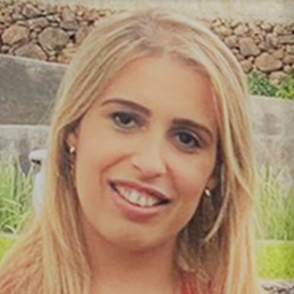

Marisa has been a Bachelor’s degree holder in Biochemistry since 2010 and obtained a Master’s degree in Applied Biochemistry in 2016 from the University of Madeira. Her research lies in the use of microbial-derived exopolymers for the development of advanced biomaterials with potential applications in various fields. She is a doctoral fellow of the Portuguese Foundation for Science and Technology (FCT) at the Laboratory of Biotechnology, Bioanalysis, and Biomaterials at the University of Madeira and CIIMAR.
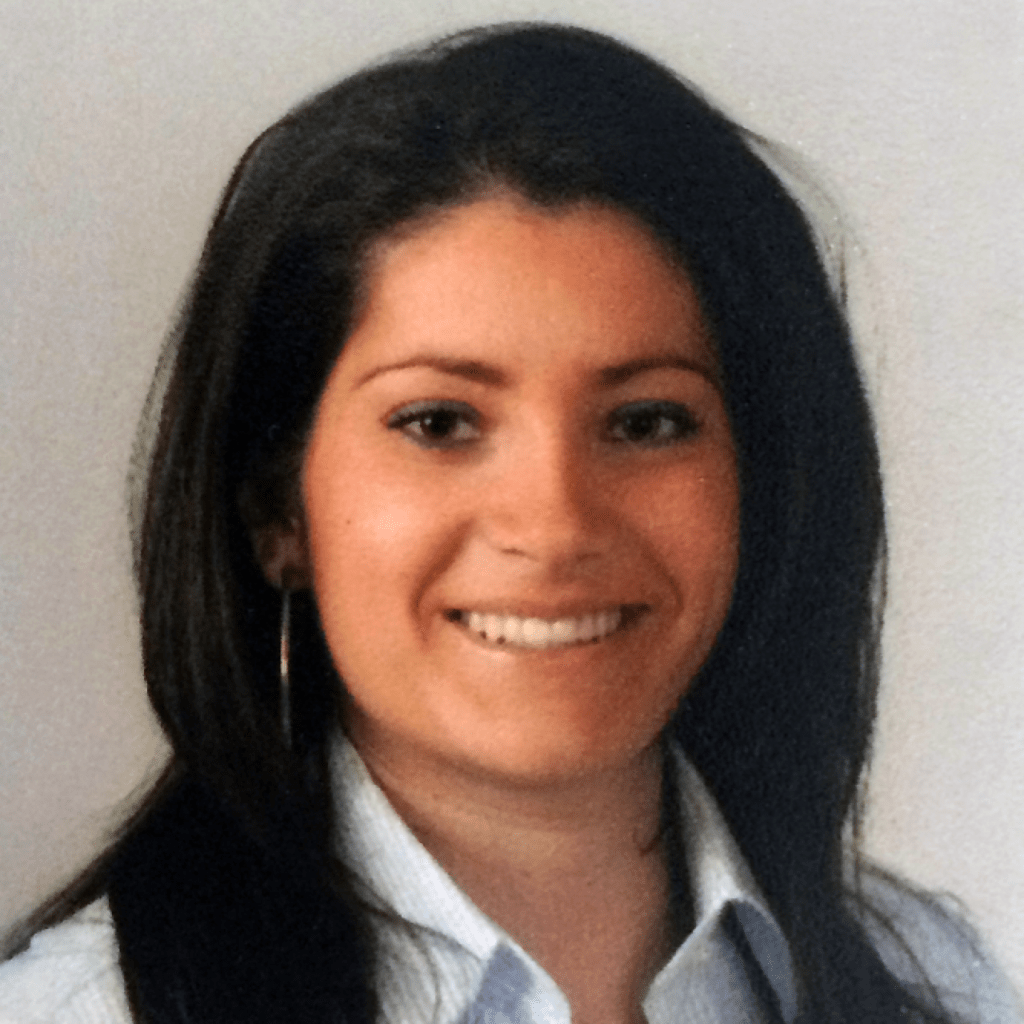

Marisa Freitas has a degree in Environmental Health from the School of Health, Polytechnic of Porto (2007). She also holds a master’s degree in Environmental Contamination and Toxicology (2009) and a PhD in Environmental Sciences and Technology (2014) from the University of Porto. At present, she is an Adjunct Professor at the School of Health at the Polytechnic of Porto and a Researcher at BBE/CIIMAR. Her research interests are focused on exploring the feasibility of applying cyanobacteria as a renewable bioresource for various industrial purposes, to promote sustainability and reduce the existent negative impacts on the environment and human health.
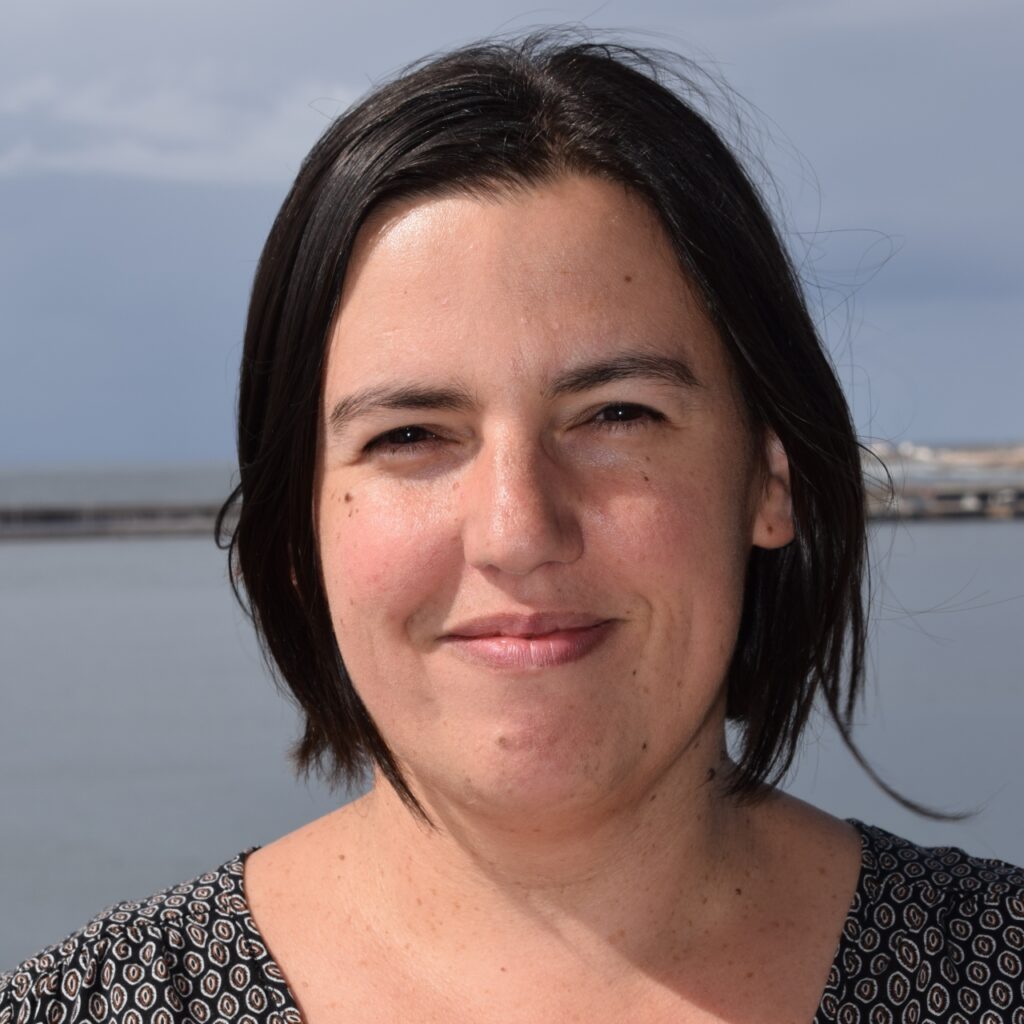

I graduated in the year 2000 from the Faculty of Sciences, University of Porto, with a degree in Biology. I joined the group in 2002 when I started doing phytoplankton identification and enumeration. In 2005, I completed a MSc in Hydrobiology where I studied freshwater planktonic communities. Since then I’ve continued monitoring environmental samples for the presence of potentially toxic phytoplankton, determination of biovolumes and quantification of toxicity.
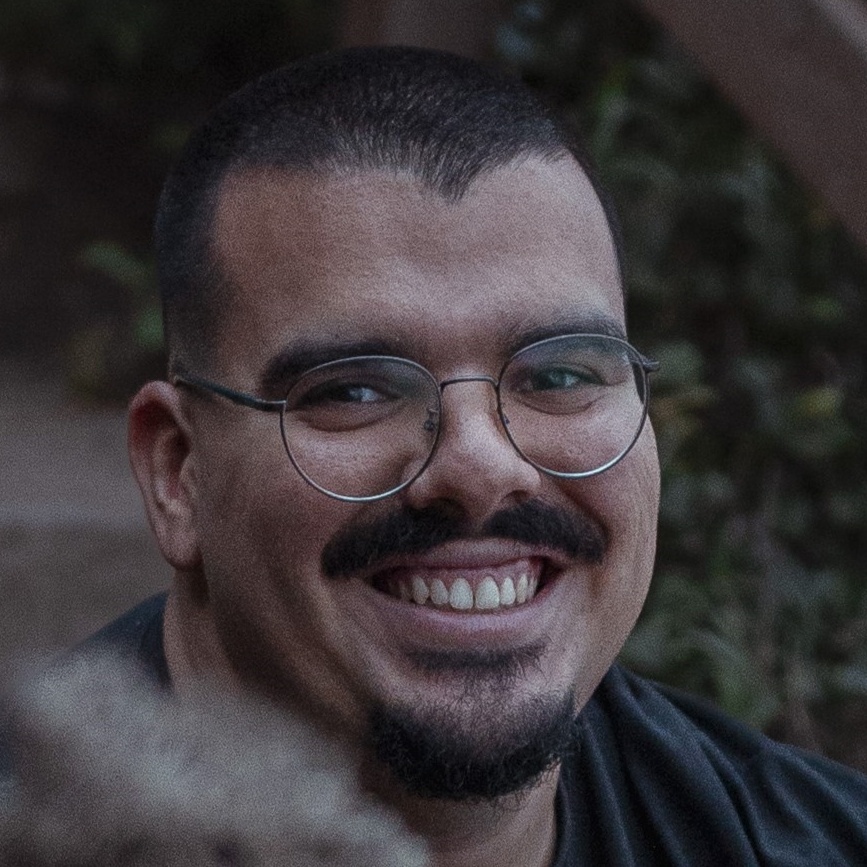

Miguel Barbosa is a Marine Biologist currently conducting research at the Instituto Português do Mar e da Atmosfera (IPMA), Faculdade de Ciências da Universidade de Lisboa (MARE-FCUL) and Centro Interdisciplinar de Investigação Marinha e Ambiental (CIIMAR). He graduated in Marine Biology and Biotechnology in 2020, at the Instituto Politécnico de Leiria (ESTM-IPL). He finished his master’s degree in Microbiology in 2022, by the Instituto Superior Técnico from Universidade de Lisboa (IST), in partnership with MARE-FCUL and IPMA. Currently, he is pursuing his PhD in Marine Sciences (FCUL), studying the effect of climate change on toxic microalgae and harmful algal blooms.
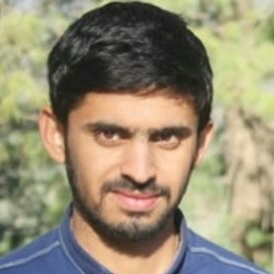

Haris, with a background in Biochemistry from the Arid Agriculture University Rawalpindi (2017) and a master’s degree from COMSATS University Islamabad (2021), is currently pursuing his PhD with support from FCT. Focusing on nanobiotechnology, Haris is dedicated to developing innovative functional foods using algal exopolysaccharides. His work, under the joint guidance of the University of Madeira/CIIMAR, University of Aveiro, and University of Las Palmas, represents a collaborative effort to foster innovations that drive food sustainability.
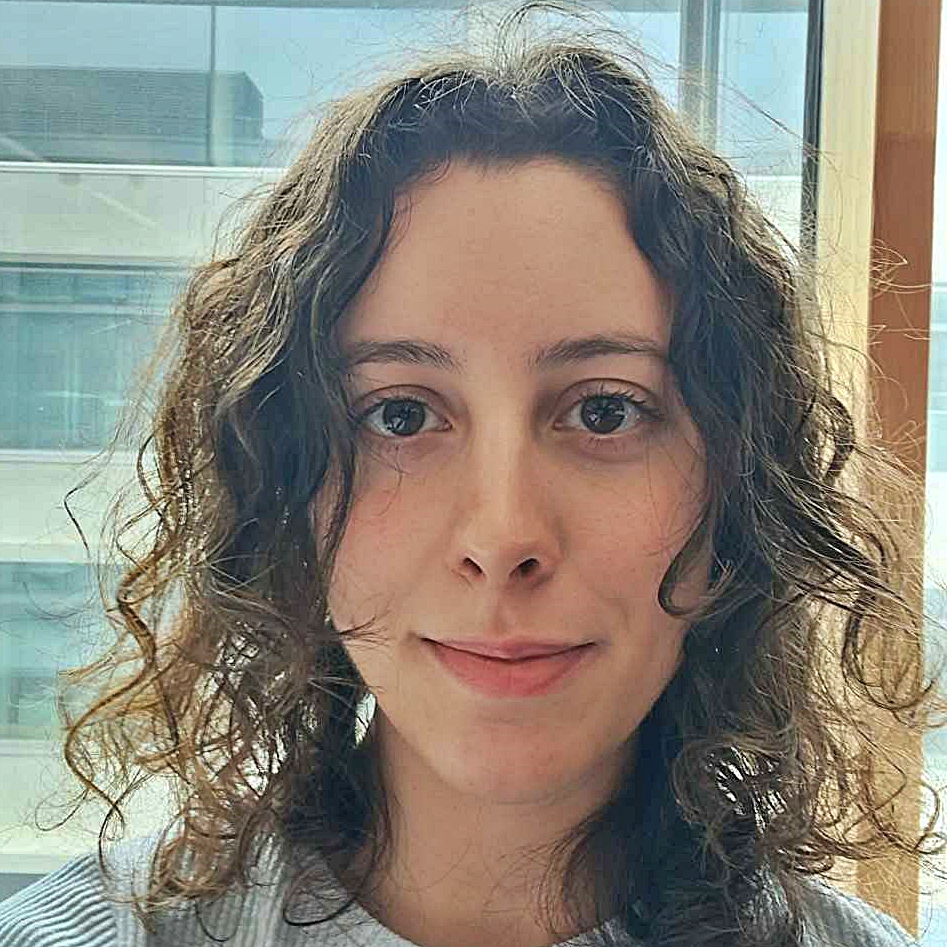

Natália Silva has a bachelor’s degree in Aquatic Sciences and a master’s degree in Environmental Toxicology and Contamination (2018) from University of Porto. Currently she is working in the Biodiscovery for Health team of CIIMAR as a PhD student. Her investigation research focus is on bioactivity screening of marine cyanobacteria for the isolation and structure elucidation of novel compounds for obesity related co-morbidities. During the last 6 years she has developed and strengthened several skills, including in several microorganism cultures, natural products chemistry (isolation and structure elucidation), bioactivity screening assays and in vivo toxicological assays, and molecular characterization of compounds.


Nereida Cordeiro is an Associate Professor of Chemistry at the Faculty of Science and Engineering of the University of Madeira, holding a degree in Analytical Chemistry and a Ph.D. in Chemistry from the University of Aveiro (Ph.D., 1998). With a scientific career spanning over 25 years, she has intensively dedicated herself to finding sustainable solutions for environmental challenges, developing environmentally friendly biomaterials and technologies. Currently, she focuses on supervising students and researchers in exploring microalgae and cyanobacteria, as well as their metabolites, in search of advancements that can energize the algal industry and provide effective responses to the environmental challenges of the 21st century.
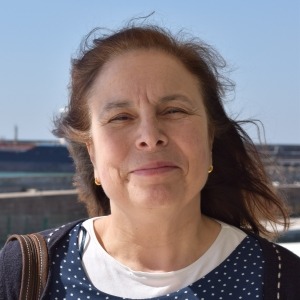

Biologist by FCUP, Associate Professor at FCUP and the PI of a small research group at the CIIMAR. More than 40 years’ experience in teaching Microbiology and PhD, Master and Bachelor thesis supervision. Main interest – study of Planctomycetota: isolation, characterization, genomics and biotechnological applications and the study of other bacteria such as Actinomycetota and extremophiles. Published more than 80 publications. Several national and international projects. National expert in detachment at the European Commission, director of the Biology department, between 2020-2022, director of the degree in Biology, between 2018-2020 and coordinator, during 12 years, of the Mobility Programs at FCUP.
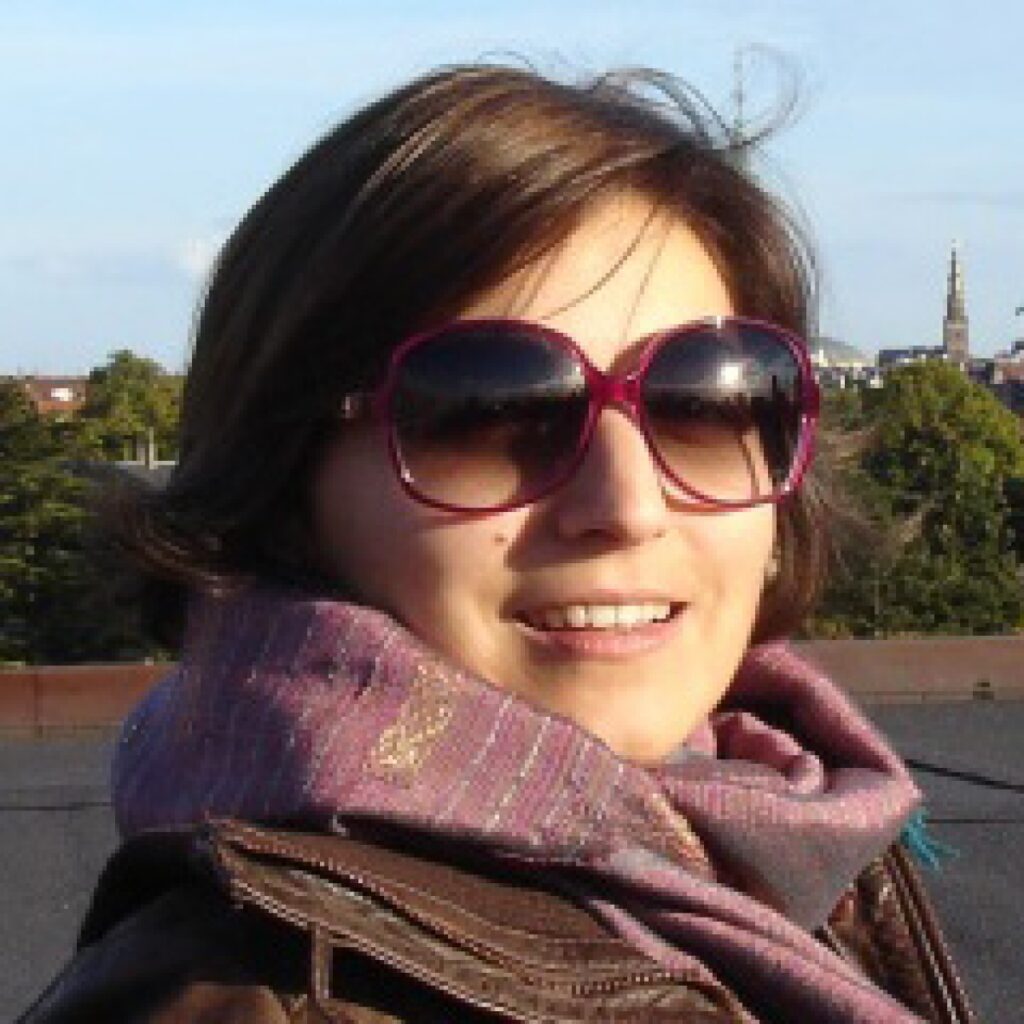

Paula Campos is a researcher specialized in ancient DNA applications to archaeological, paleontological and conservation biology questions. She received her degree in Biology in 2000, her MSc in Biodiversity and Genetic Resources in 2005 from the University of Porto and her PhD in Evolutionary Biology in 2009 from University of Copenhagen. As of January 2020, her publications include 2 theses, 4 book chapters, 1 technical report and 48 papers in international peer review journals. Of these, 15 were published in major multidisciplinary scientific journals including PNAS, Science and Nature, but also in specialized journals like Journal of Archaeological Science and Molecular Ecology. Paula is funded through FCT’s Individual Call to Scientific Employment Stimulus, CEEC2017.
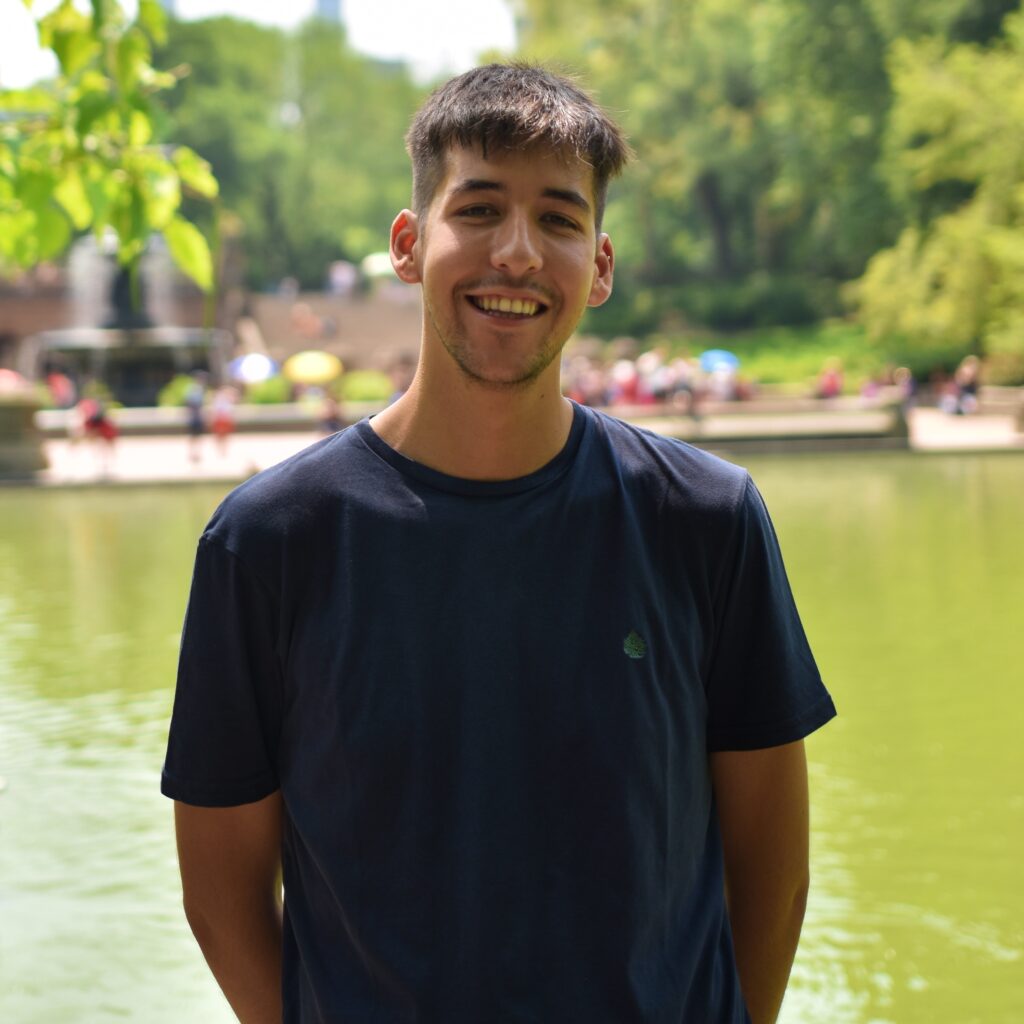

Pedro Cruz has a bachelor’s in environmental sciences and technology from FCUP and a master´s in Environmental Toxicology and Contamination from ICBAS/FCUP. Afterwards he worked in different projects some in food safety and some in exploiting cyanobacteria and microalgae potential.
He has been exploring cyanobacteria and microalgae, from their isolation to the assessment of their different bioactivities.
Currently, he is a PhD student in Marine Biotechnology and Aquaculture from FCUP. His work focuses on development of biofertilizers, biostimulants and bioprotectors from novel cyanobacterial and microalgal strains.


Rafael Vieira is a master’s student in Bioinformatics and Computational Biology (FCUP), having graduated in Medicinal Biotechnology from the School of Health in 2022.
His project focuses on the design of in-silico aptamers through the development of a machine learning model. In parallel, his work involves developing a unified database for sharing information about the field.
The ultimate goal will be to apply these technologies to the preliminary search for possible aptamers in the context of marine bioremediation.


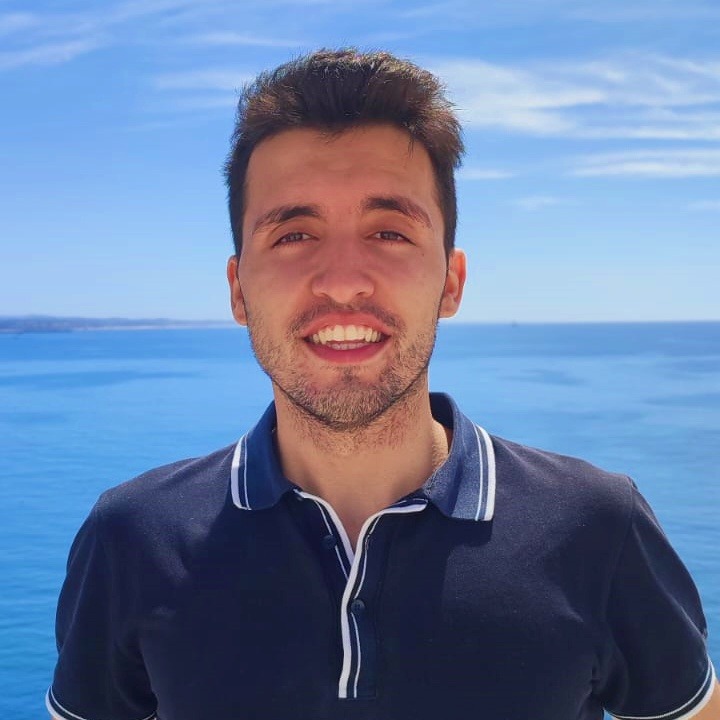

Renato Soares graduated in Biology in 2020 and obtained his master’s degree in bioinformatics and computational Biology in 2023 from the Faculty of Sciences of the University of Porto (FCUP). His master’s thesis focused on enhancing a database of bioactive compounds from cyanobacteria and creating an online website for it, as well as exploring the use of this database for machine learning purposes utilizing the compounds chemical/molecular descriptors. Renato is now involved in the Blue Portuguese Biobank project, where he oversees the construction and maintenance of the Biobank database.
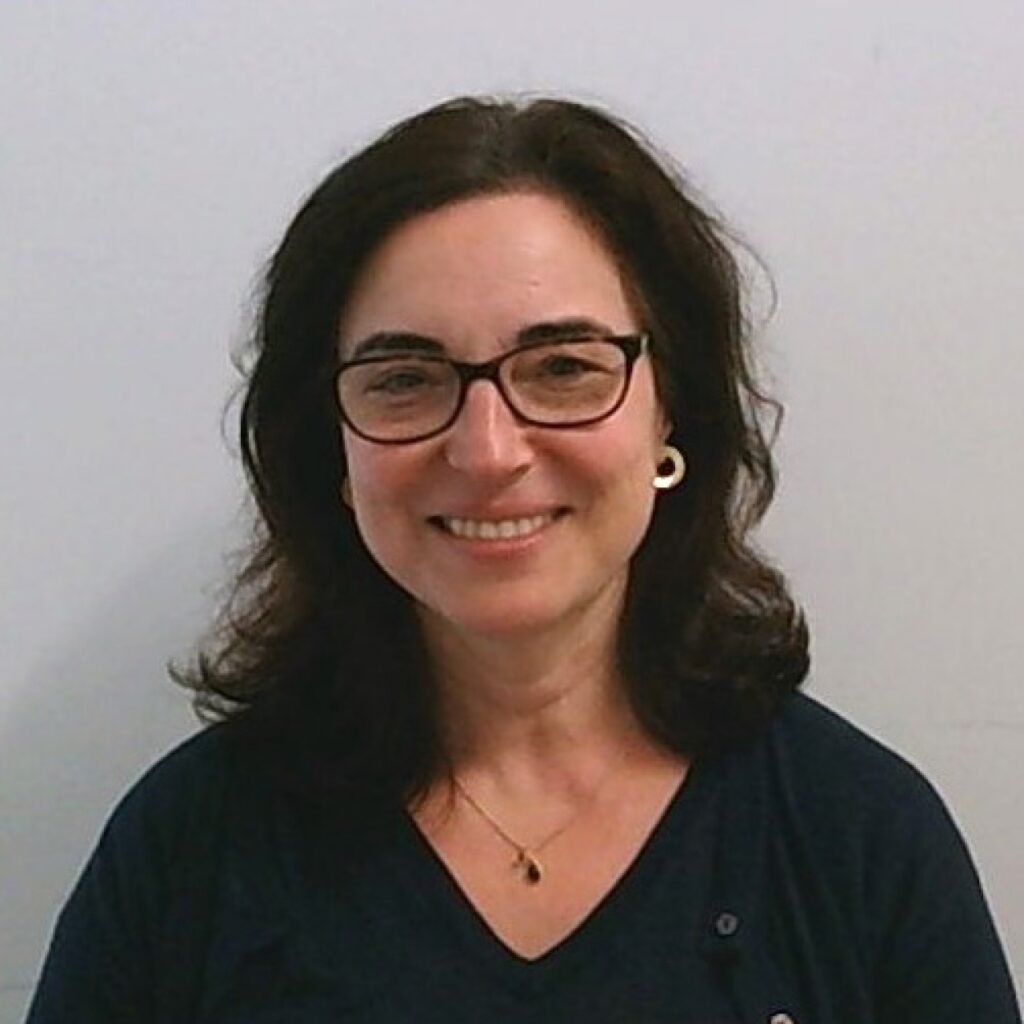

Rosário Martins has a Degree in Biology (1996), a MSc in Hidrobiology (1999) and a PhD in Biology (2006). She is full professor at the School of Health of Polytechnic Institute of Porto (ESS|P.Porto). Her main research interests are focused on the potential application of natural compounds, namely from cyanobacteria, in health areas such as skin care and, more recently, neurodegenerative diseases.
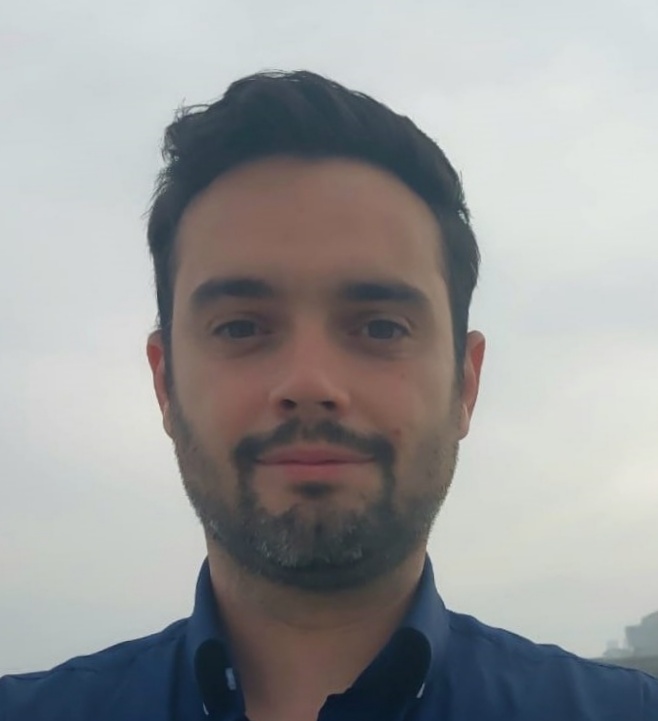

Rui Barbosa has a degree in Environmental Health from the School of Health of the Polytechnic Institute of Porto and a Master’s degree in Risks, Cities and Spatial Planning from the Faculty of Letters of the University of Porto. In his education, he acquired knowledge in the fields of health and environmental sciences, natural sciences and social sciences. He is currently a student in the PhD programme in Environmental Contamination and Toxicology at the Institute
of Biomedical Sciences Abel Salazar. He is part of the CIIMAR team working on toxic cyanobacteria, with a focus on their evolution in response to climate change.
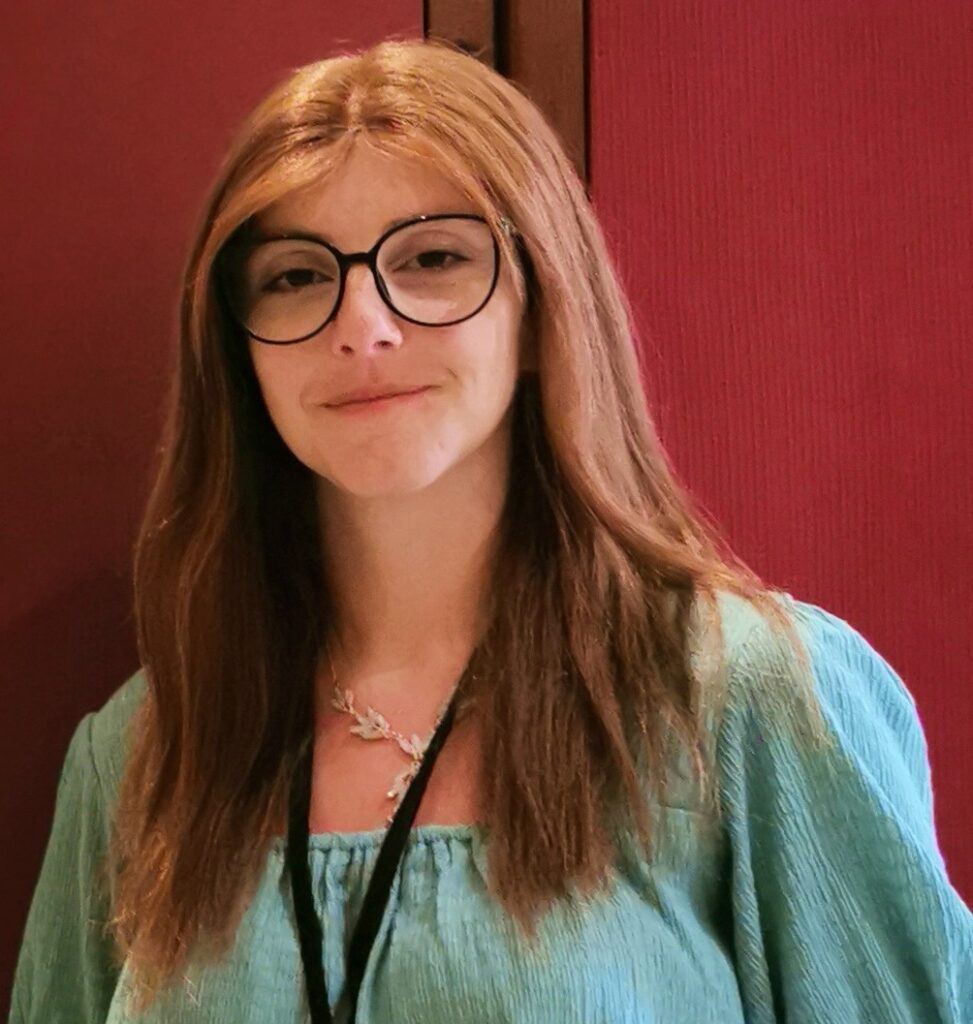

Sandra Pereira graduated in Biology (Faculty of Sciences, University of Porto) and holds a MSc in Environmental Contamination and Toxicology (ICBAS, University of Porto). Since her master’s degree, she has been working with cyanobacteria, studying their association with marine sponges, and later the toxicity of cyanobacterial blooms in freshwater systems. Currently, she is a PhD student in Marine Biotechnology and Aquaculture doctoral program (Faculty of Sciences, University of Porto). Her present work is focused on exploring the potential of cyanobacteria for natural products, that can prevent the adhesion of marine biofouling organisms (under the NASCEM project).
Almeida, J. R., Palmeira, A., Campos, A., Cunha, I., Freitas, M., Felpeto, A. B., Turkina, M. V., Pinto, M., Vasconcelos, V., Correia-da-Silva, M., Sousa, M.
2020Biomolecules 10, 1126Silva, M., Rodriguez, I., Felpeto, A. B., Kaufmann, M., Neto, A. I., Hassouani, M., Sabour, B., Alfonso, A., Botana, L. M., Vasconcelos, V.
2020Marine Pollution Bulletin 161: 111725Gutiérrez-del-Río, I., Brugerolle de Fraissinette, N., Castelo Branco, R., Oliveira, F., Morais, J., Redondo-Blanco, S., Villar, C., Iglesias, M. J., Soengas, R., Cepas, V., Cubillos, Y., Sampietro, G., Rodolfi, L., Lombó, F., González, S., López Ortiz, F., Vasconcelos, V., Reis, M.
2020Journal of Natural Products 83, 6, 1885– 1890Lopes, G., Clarinha, D., Vasconcelos, V.
2020 Microorganisms 8:302.Sousa, M. L., Preto, M., Vasconcelos, V., Linder, S., Urbatzka, R.
2019 Frontiers in Oncology 9:224. 127: 11215-11219Website by: Glitz Design